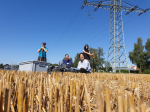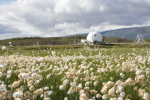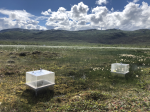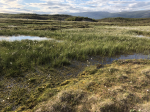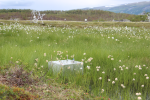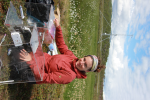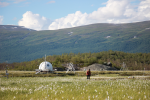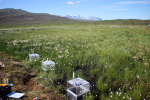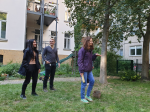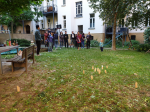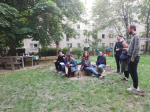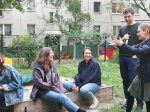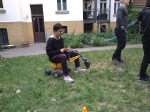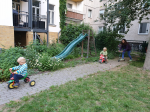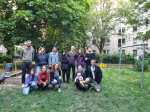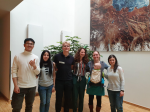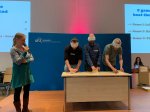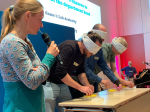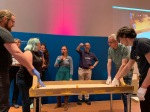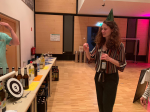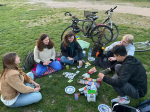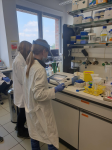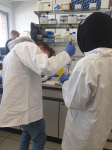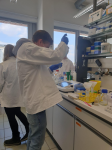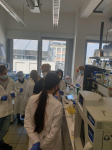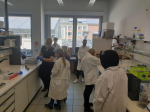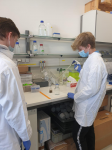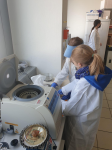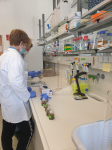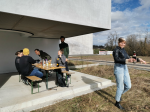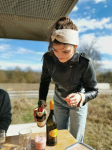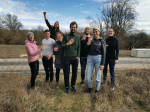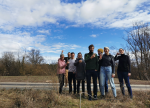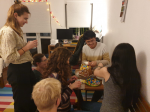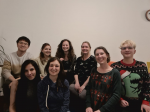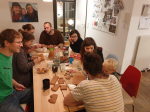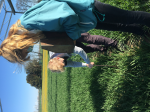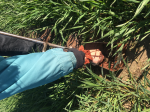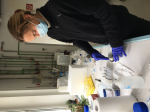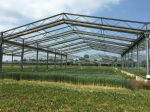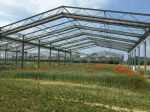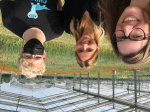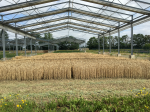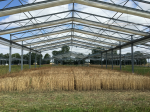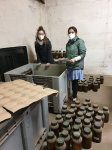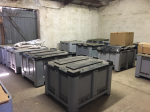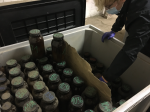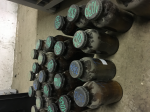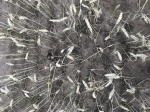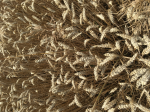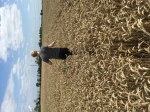Plant Biogeochemistry
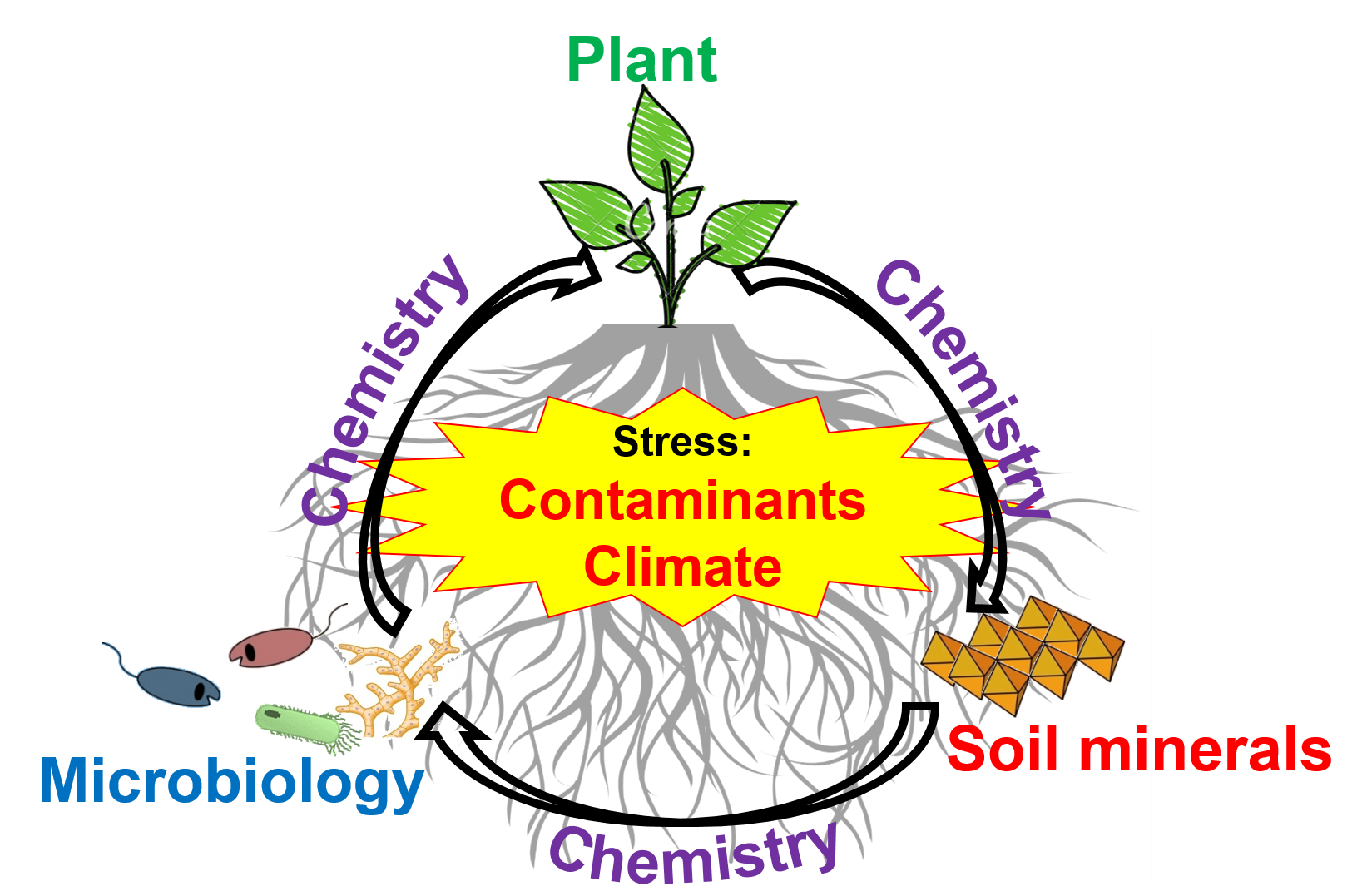
Welcome to the Plant Biogeochemistry Lab!
Our research broadly focuses on the interplay of roots with soil minerals and microorganisms and what impact that has on the environment, food production, soil quality or the global carbon cycle. If these topics interest you, contact us!
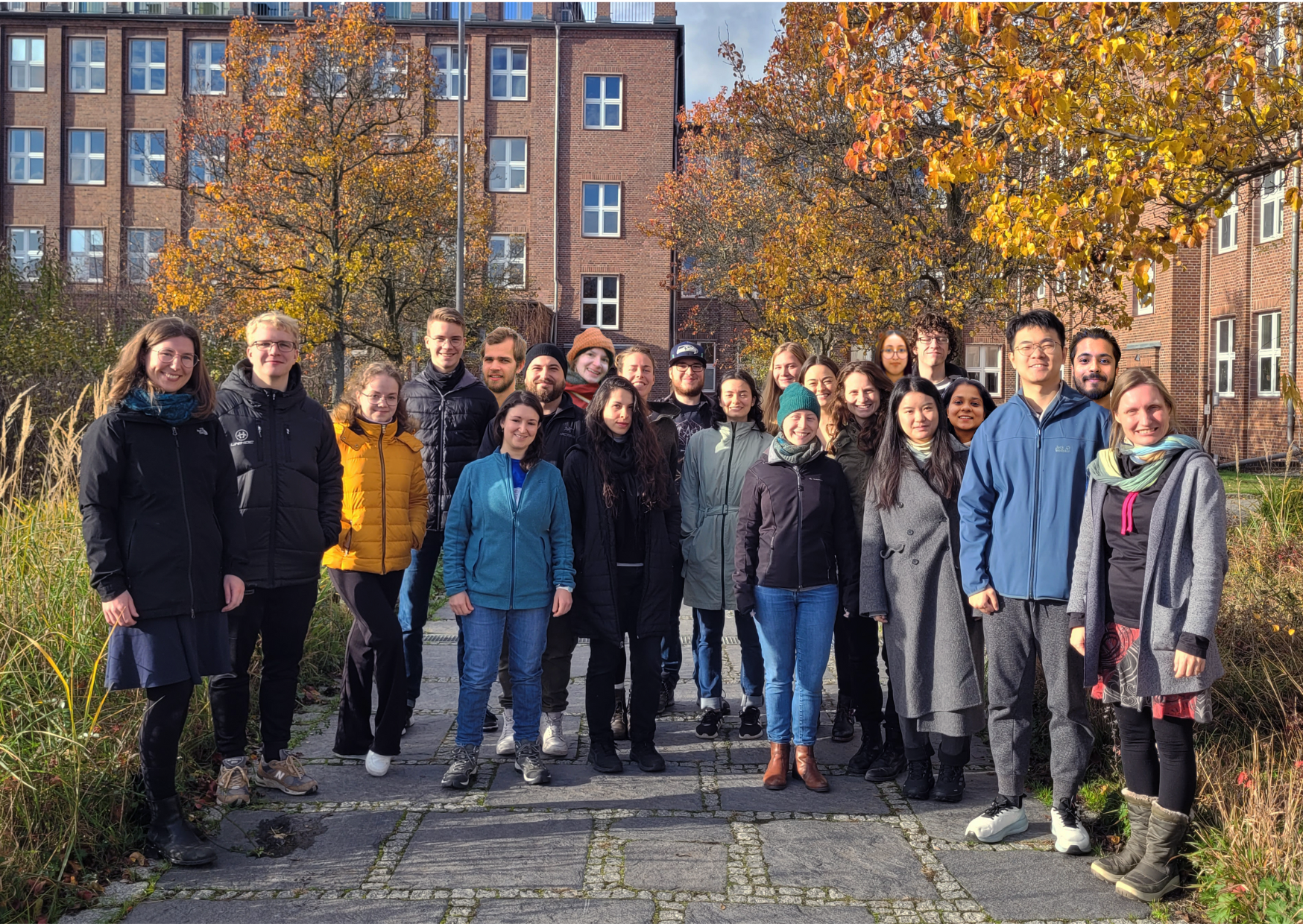
News
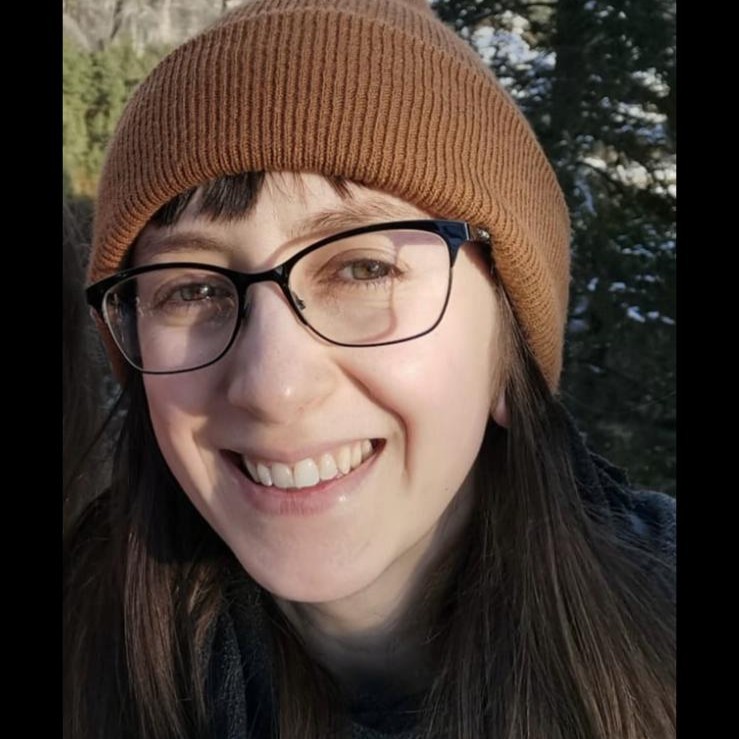
February 2026
We are pleased to welcome Alyssa Wagner as an intern in our group! Alyssa is a Master’s student at TU Dresden and will be supporting Mara Breit Floodplain Resistance project. Her work will mainly focus on DNA and RNA extraction from field soil samples.
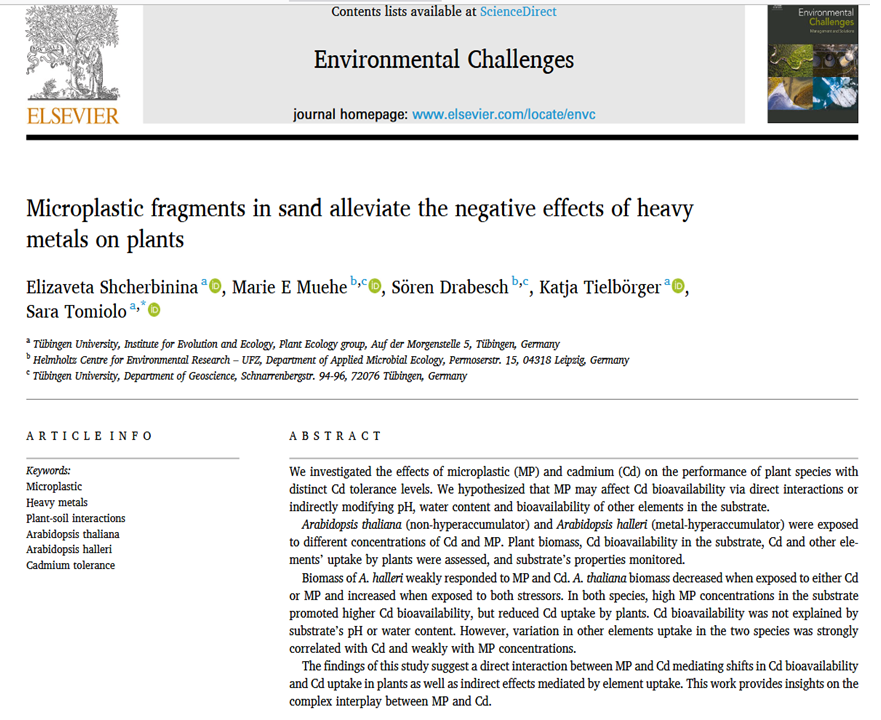
February 2026
We are delighted to announce the publication of a new study by Elizaveta Shcherbinina in Environmental Challenges, titled “Microplastic fragments in sand alleviate the negative effects of heavy metals on plants”. We warmly congratulate Elizaveta and the entire research team on this important scientific contribution. The press release and the full article are available via the links provided above.
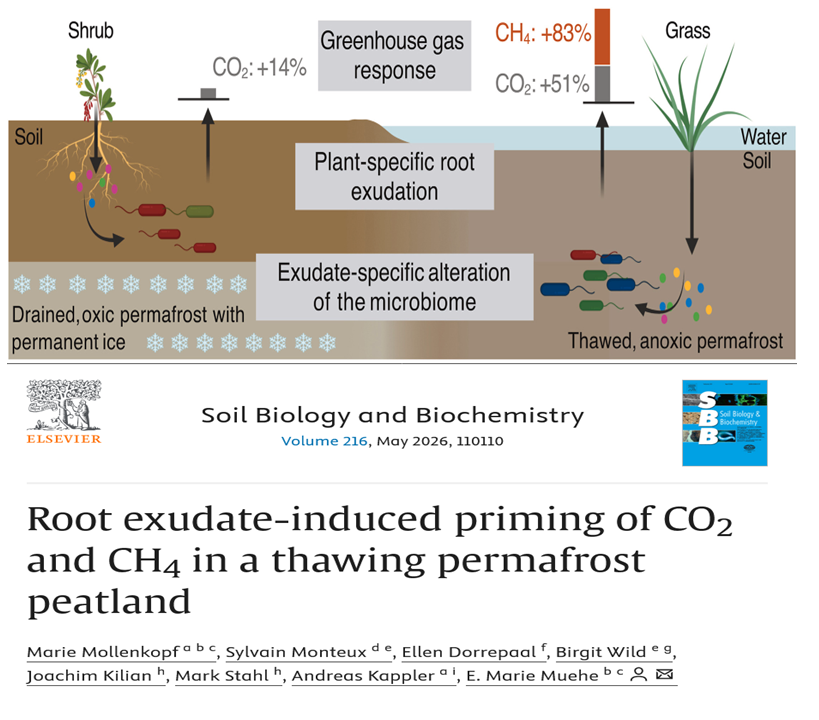
February 2026
We are pleased to share that Marie Mollenkopf has published a new article in Soil Biology and Biochemistry, titled “Root exudate-induced priming of CO₂ and CH₄ in a thawing permafrost peatland”. We warmly congratulate Marie and the entire research team on this important scientific contribution. The press release and the full article are available via the links provided above.
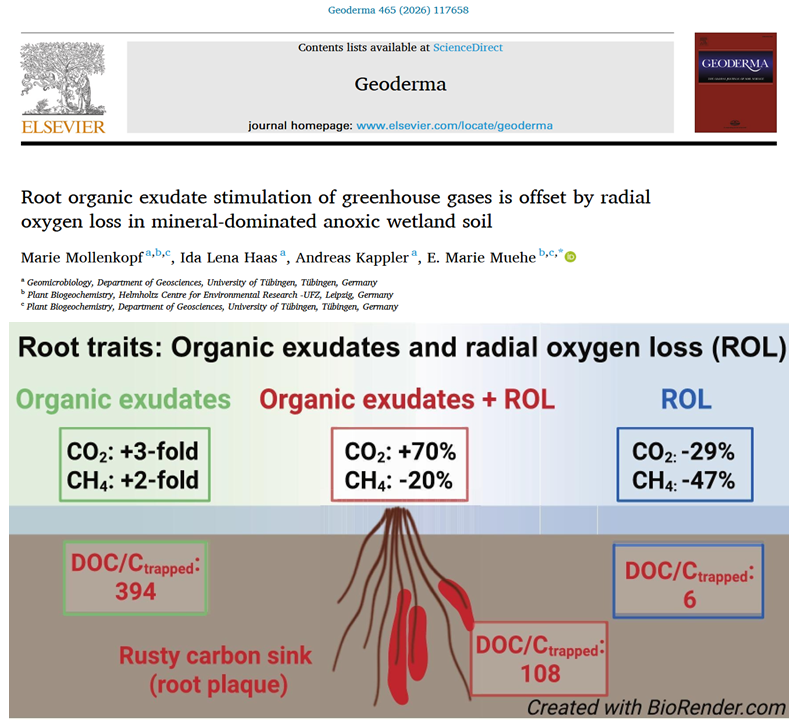
January 2026
We are delighted to announce the publication of a new study by Marie Mollenkopf in Geoderma, titled “Root organic exudate stimulation of greenhouse gases is offset by radial oxygen loss in mineral-dominated anoxic wetland soil.”We warmly congratulate Marie and the entire research team on this important scientific contribution. The press release and the full article are available via the links provided above.

December 2025
We are pleased to share that Sören Drabesch has published a new study in Environmental Pollution titled “Rising temperature and atmospheric CO₂ combine to antagonistically alter Cd mobility and biogeochemistry in an agricultural soil.” Congratulations to the entire research team on this achievement. The press release and full article are available via the links above.
Head of Workgroup
Technician

Paul Richter
(based at the UFZ Leipzig)

Hendrik Seifert
(based at the UFZ Leipzig)
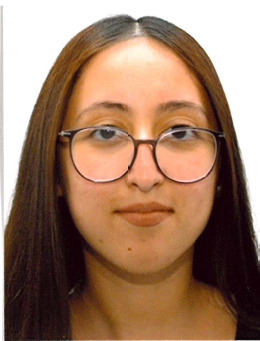
Sonia Schams
(based at the UFZ Leipzig)
Postdoctoral Researchers
Aria Hamann Duncan
(based at the UFZ Leipzig)

(based at the UFZ Leipzig)
Doctoral Candidates

Natalia Sánchez
(based at the UFZ Leipzig)

Tianyu Wang
(based at the UFZ Leipzig)

Karolin Seiferth
(based at the UFZ Leipzig)
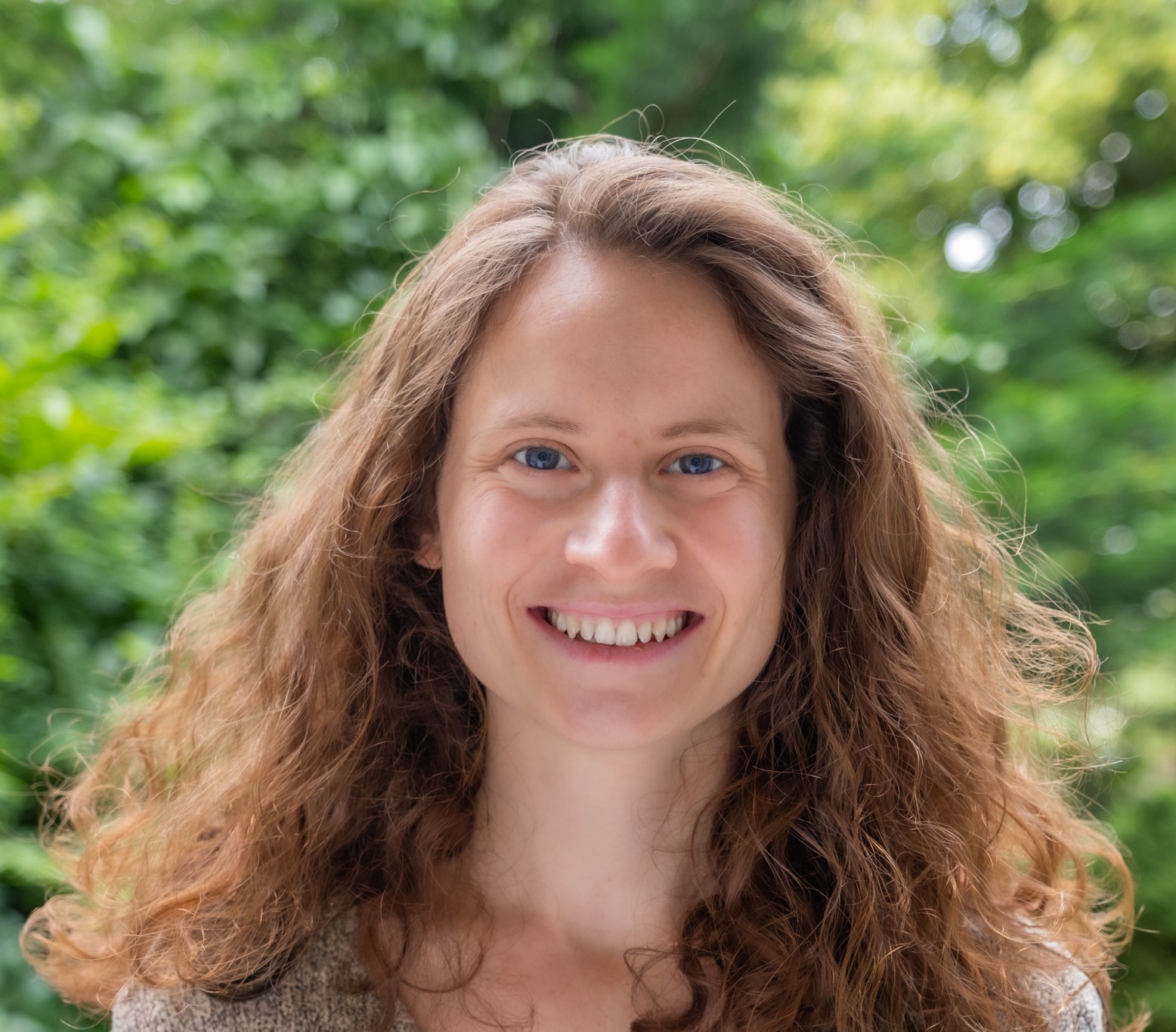
Mara Breit
(based at the UFZ Leipzig)
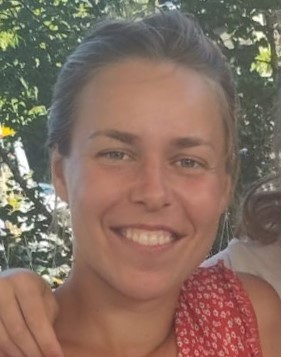
Lena Mellin
(based at the UFZ Halle)
Master Degree and Undergraduate Students

Mia Schumacher
Supervised by Karolin Seiferth
(based at the UFZ Leipzig)
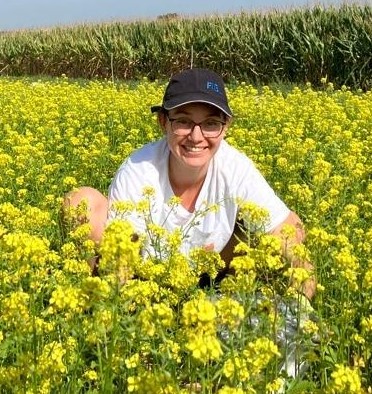
Martina Hammer
Supervised by Aria Hamann Duncan
(based at the UFZ Leipzig)

Franka Siegenthaler
Supervised by Karolin Seiferth
(based at the UFZ Leipzig)
Student Research Assistant and Interns
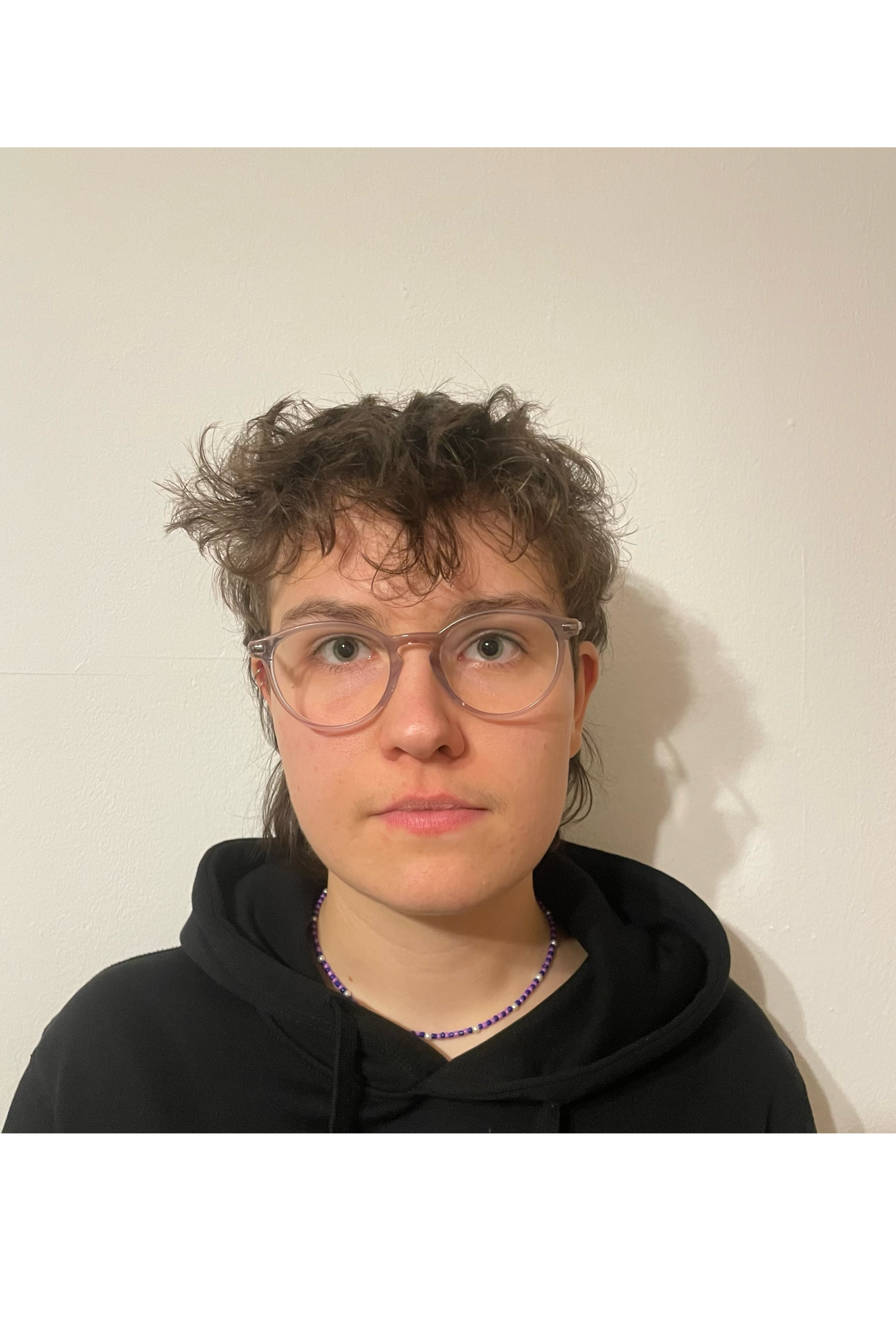
Helene Reichel
Supervised by Lena Mellin (under SmartManure project)
(based at the UFZ Halle/Leipzig)

Victoria Klawonn
Supervised by Lena Mellin (under SmartManure project)
(based at the UFZ Halle)
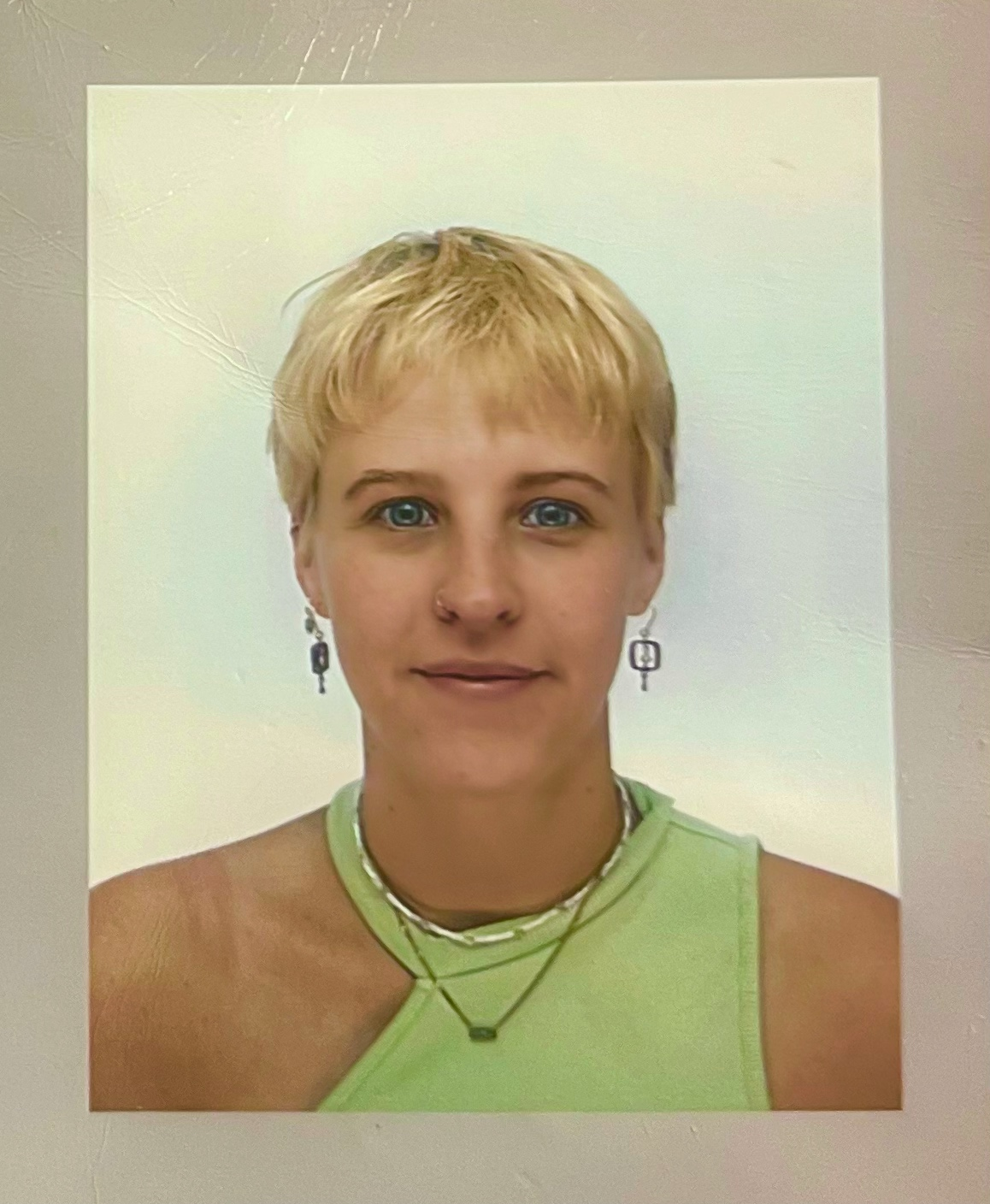
Emma Schönfelder
Supervised by Lena Mellin (under SmartManure project)
(based at the UFZ Halle/Leipzig)

Julian Kappler
Supervised by Pooja Sharma (under SunClimate project)
(based at the UFZ Leipzig)

Frida Stittrich
Supervised by Mara Breit (under Floodplain Resistance project)
(based at the UFZ Leipzig)
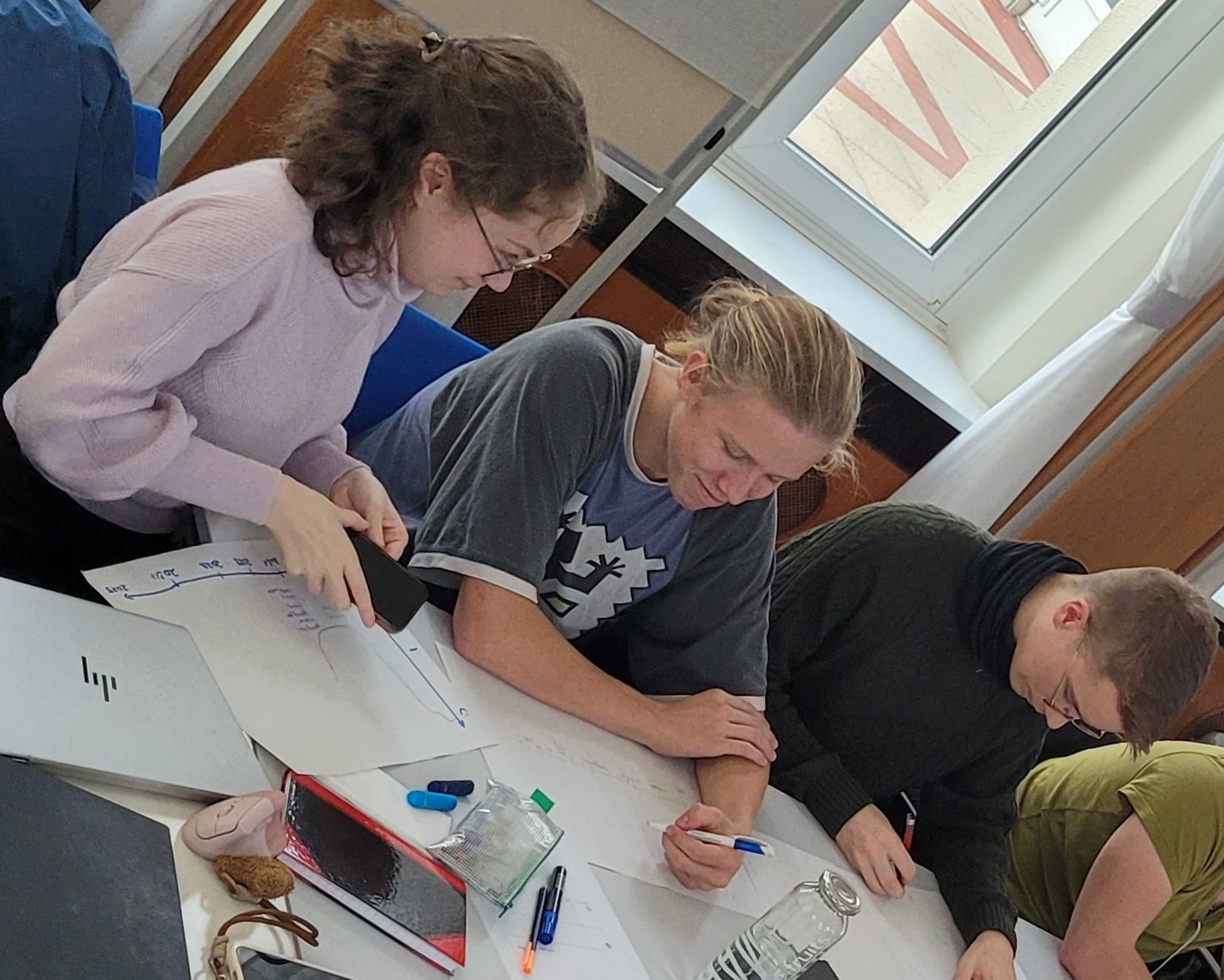
Alexandra, Friedrich, and Anton from the Erfurt high school science project
Supervised by Marie, Aria, and Carolina
(based at the UFZ Leipzig)
Current co-supervised students:
María Martín Roldán (co-supervised with Dr. Evgenia Blagodatskaya)
Xinzhu Yao (co-supervised with Dr. Carsten Vogt)
Lieke Lipsch (co-supervised with Prof. Dr. Anja Worrich)
Franziska Raab (co-supervised with Prof. Dr. Anja Worrich)
Former co-supervised students:
Hanna Grimm (co-supervised with Prof. Dr. Andreas Kappler and Prof. Dr. Christiane Zarfl)
Katrin Wunsch (co-supervised with Prof. Dr. Andreas Kappler and Prachi Joshi)
Jannis Grafmüller (co-supervised with Prof. Dr. Daniel Kray)
Carolina Vergara Cid
(based at the UFZ Leipzig)
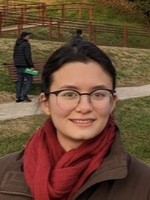
Jill Bachelder
Senior Scientist in Marco Keiluweit's Lab, University of Lausanne, Switzerland

Yunhong Zhang
PhD candidate at Sichuan Agricultural University, China
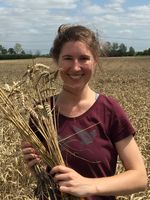
Aleksandra Pienkowska
From 2026 onward: Postdoc at the UFZ with Susann Dunkers
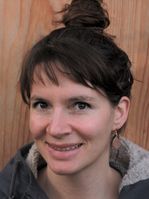
Marie Mollenkopf
Ministry for the Environment, Baden Württemberg, Germany

Soreen Drabesch
Public outreach coordinator at TüCeDE, Tübingen
Esmira Bibaj (MS)
Jenin Fleischmann (BS and Intern)
Lea Baier (BS)
Anam Danish (Intern)
Mara Breit (Intern)
Julia Kost (BS)
Alexandra Glöckle (BS)
Katja Lenge (BS and Intern)
Sebastian Müller (BSc)
Jennifer Horstmann (intern)
Alexandra Glöckle (intern)
Charlotte Roschke (MS)
Paula Kosel (MS)
Paula Gscheidel (intern)
Swati Sharma (intern)
Nikolai Michel (intern)
Nawshin Atia (intern)
Ayushi Parmar (intern)
Aaron Jacob (intern)
Alexej Steuerle (intern)
Meet Vaghela (intern)
Shital Khadela (MS)
Natascha Kalantar (MS)
Lena Haas (BS)
Katja Lenge (MS)
Usama Usama (intern)
Drishti Agarwalas (intern)
Giulia Ghita (intern)
Jessica Hamm (MS)
Noah Fruth (MS)
Sarah Keldenich (MS)
Dominik Buab (MS)
Konstantin Richard Fischer (MS)
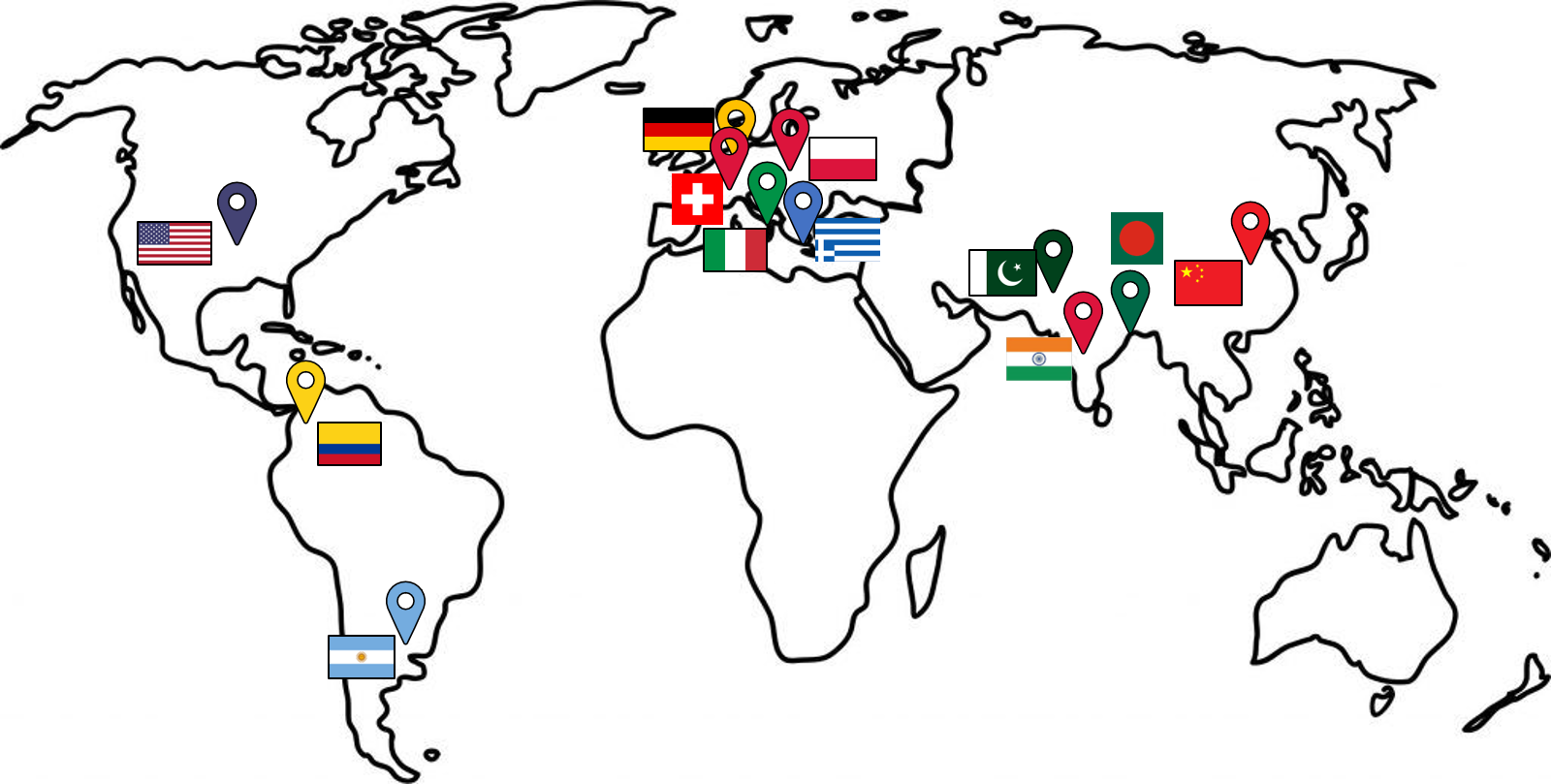
If you are interested in working in our team in form of a thesis or an internship, but are not interested in the following topics, please contact us. We have a lot of other ideas and are very open to yours!
Grain, leafy, and tuber crops are fundamental to global food security and a balanced diet. However, climate change and rising levels of soil contaminants, such as metals, pose significant threats to future crop production. While the individual effects of these factors on yield quantity and quality are well-documented, their combined impact remains largely unknown. This project aims to assess the risks that climate change and metal pollution present to crop production and identify the most effective agricultural practices to mitigate potential losses. To achieve this, we utilize UFZ’s long-term field experiments—the (Global Change Experimental Facility and Static Fertilization Experiment) at Bad Lauchstädt Research Station, where crops are cultivated under varying climatic conditions, soil contamination levels, and farming practices. By analyzing crop yield quantity and quality, we investigate metal and nutrient accumulation in plants. To uncover the underlying mechanisms affecting crop yield, we collect rhizosphere samples throughout the growing season and conduct detailed geochemical (soil properties, metal bioavailability, metal binding sites) and microbiological (abundance, diversity, taxonomy, functionality) analyses. Additionally, we employ cutting-edge techniques such as zymography, planar optodes, and NanoSIMS to visualize the spatial distribution of metals and nutrients in and around plant roots.
By integrating these approaches, this research will provide critical insights into how climate change and metal contamination interact, ultimately guiding the development of sustainable agricultural strategies that support long-term food security. We explore phytoremediation strategies alongside crop production by integrating undersown crops. Compared to monoculture fields, undersown crops enhance soil health through various mechanisms. As part of the PhD college SmartManure, we investigate their potential to remove contaminants from liquid manure applied in corn production. Five different undersown crops are tested and compared for their ability to: 1) Extract and immobilize metals, 2) manage excessive nitrate, 3) extract and degrade antibiotics, and 4) reduce the proliferation of antibiotic resistance genes.
People involved:
Aleksandra Pienkowska, Jill Bachelder, Yunhong Zhang, Aria Duncan, Lena Mellin, Sunflower cover crop postdoc
This project is part of the Young Investigator Grant RhizoThreats: Rhizospheres under Attack from Coupled Climate and Soil Contaminant Stress, which is funded by the Helmholtz Association and the Centre for Environmental Research.
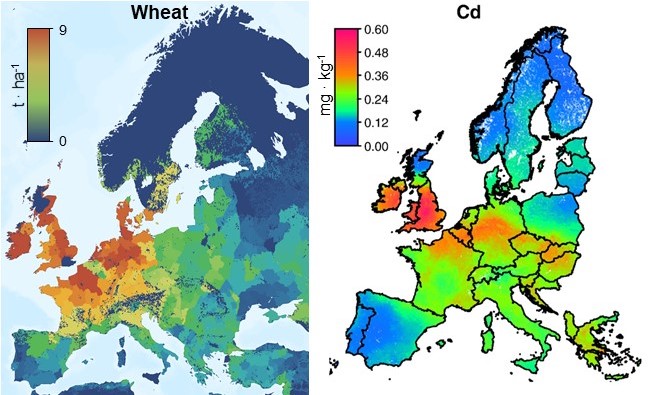
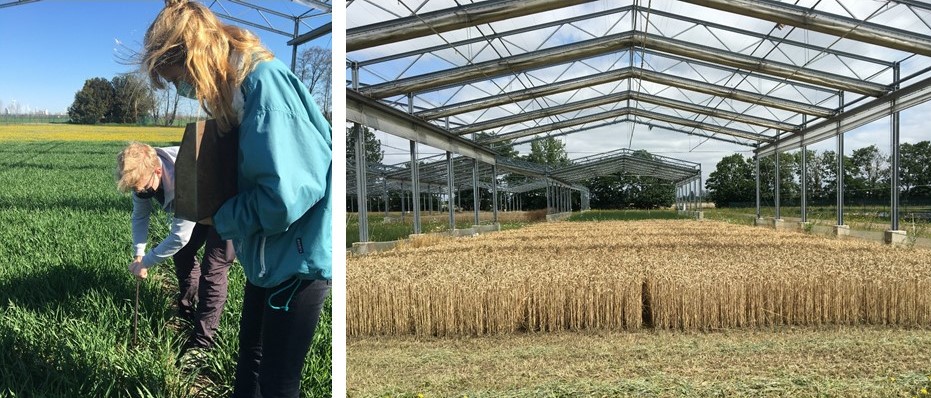

Phytoremediation is a powerful environmental remediation strategy that leverages the natural ability of plants to accumulate contaminants, such as metals, thereby reducing soil pollution. Our research focuses on understanding how environmental factors influence phytoremediation efficiency by studying the metal-hyperaccumulating model plant Arabidopsis halleri alongside various cover crops. To achieve this, we conduct greenhouse experiments under diverse conditions, including different soil types, metal contamination levels, climatic scenarios, and plant ecotypes. We examine how plant root systems interact with soil microbial communities and geochemical processes, shedding light on key factors that drive metal uptake and detoxification. By integrating physiological plant responses (root architecture, metal accumulation, enzymatic activity, chlorophyll content, stress markers), advanced microbial community assessments (amplicon sequencing, qPCR), and critical soil geochemical analyses (metal bioavailability, nutrient cycling, enzyme activities), we aim to uncover the mechanisms governing phytoremediator rhizospheres under both current and future climatic conditions. A deeper understanding of these processes is essential for optimizing phytoremediation strategies, with potential applications in agriculture. We recently published a paper discussing these concepts in the context of agricultural systems, contributing to the advancement of sustainable soil management practices.
People involved
Dr. Carolina Vergara Cid
Natalia Sánchez
Yunhong Zhang
Jessica Hamm
Lena Mellin
Sunflower cover crop postdoc
This project is part of the:
1. Young Investigator Grant RhizoThreats: Rhizospheres under Attack from Coupled Climate and Soil Contaminant Stress, which is funded by the Helmholtz Association and the Centre for Environmental Research.
2. NUTCLIME (Marie Skłodowska-Curie Actions by the European Commission).
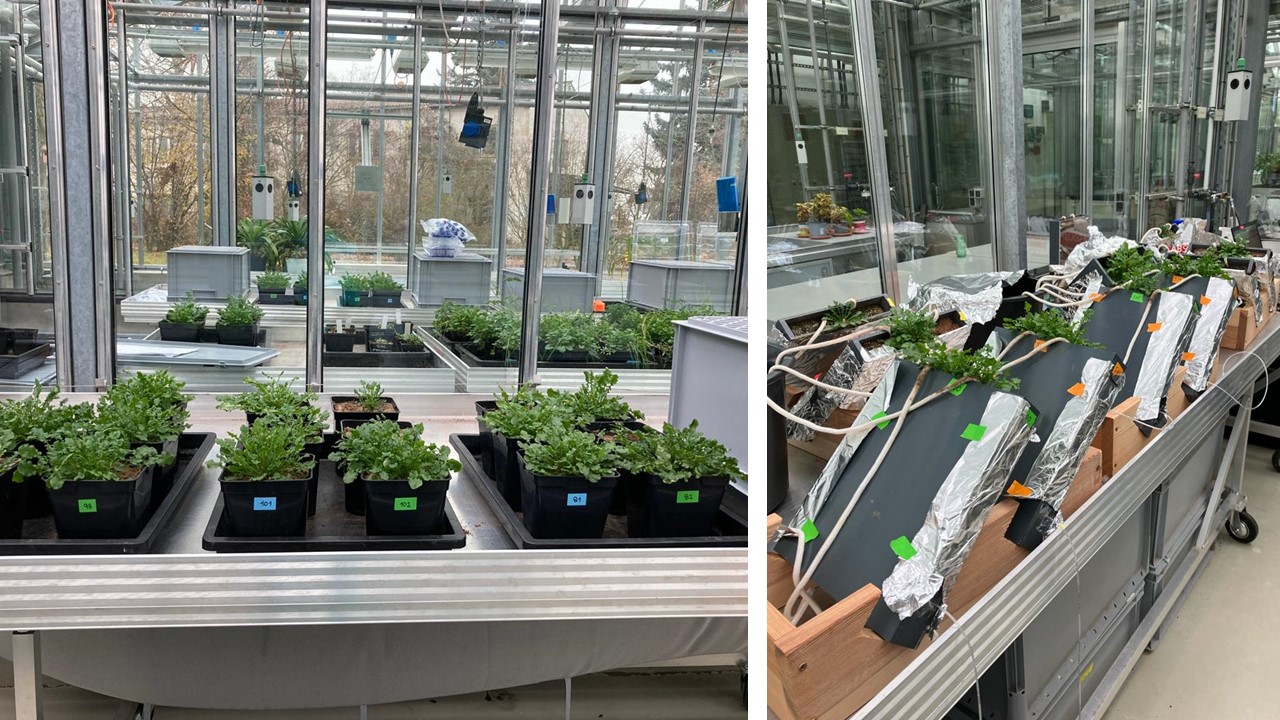
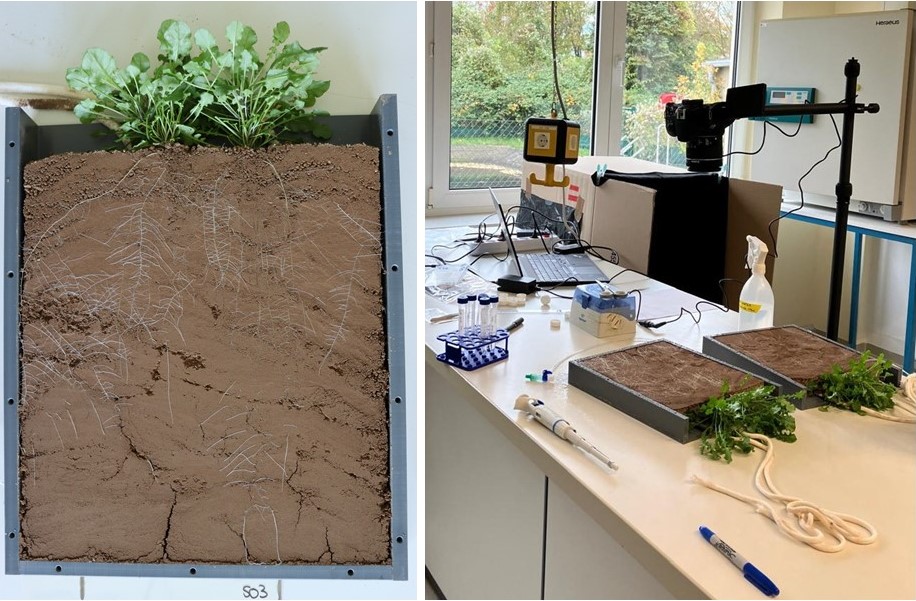

We have currently three ongoing projects under this theme:
• At the UFZ, we assess how climatic change coupled to arsenic and cadmium stress affect greenhouse gas emissions from rice paddy soils under different water management regimes. This project is funded by the China Scholarship Council and the responsible PhD student is Tianyu Wang.
• In collaboration with the Kappler lab at the University of Tuebingen, we elucidate how climate impacts the behavior of cadmium in agricultural soils and how that impacts greenhouse gas emissions. This project is funded by the Elite Programme of the Baden-Württemberg Stiftung. The responsible PhD student is Sören Drabesch.
• In collaboration with the Fendorf lab at Stanford University, we investigate whether the emission of greenhouse gases from paddy soils is affected by coupled climate and soil arsenic stress. This project was funded by the Marie Skłodowska-Curie Action of the European Union in form of an individual Postdoc scholarship.
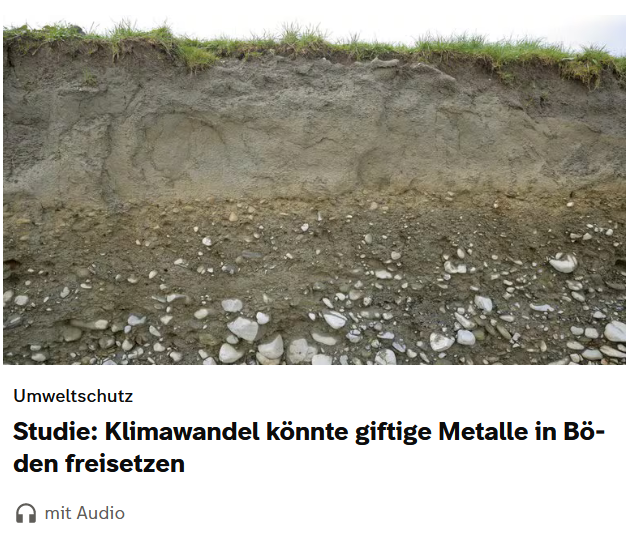
Sören Drabesch's research about how climate impacts the behavior of cadmium and greenhouse gas emissions in agricultural soils reached the German Radio SWR.
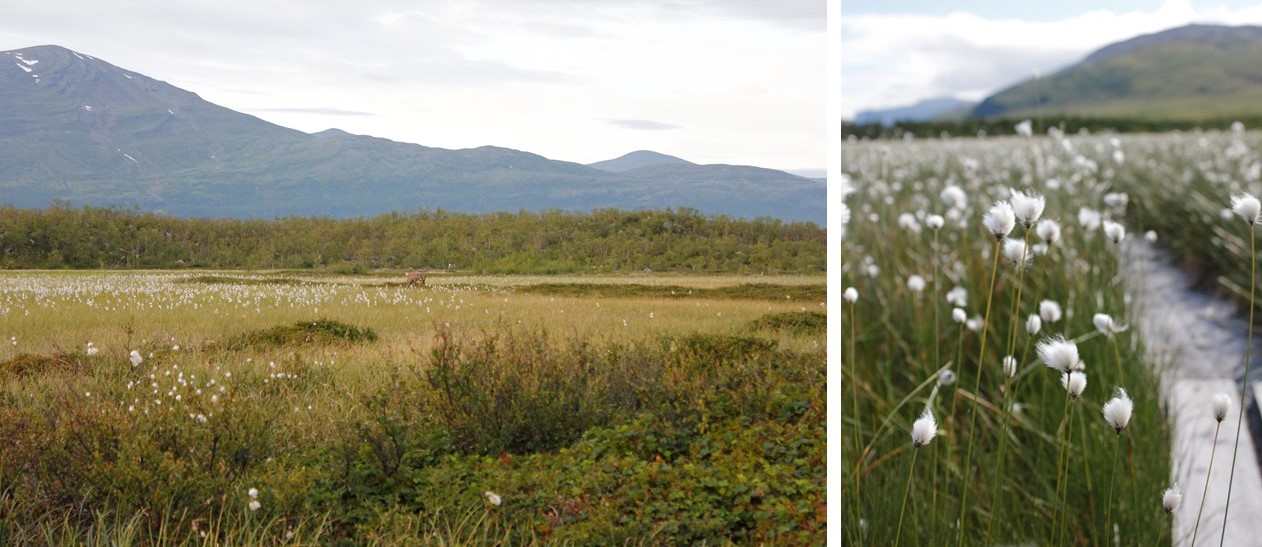
Northern permafrost regions experience stronger warming than other regions in the world, thus are very sensitive to environmental change. A direct consequence is the thawing of permafrost in soils which is known to unlock huge amounts of C and N to biogeochemical cycling. Thawing results in a simultaneous ecosystem and plant-community shift from elevated, dry and nutrient-poor patches (palsa) inhabited by shrubs and mosses to inundated, wet and nutrient-rich areas (fen) dominated by mosses and sedges.
Plant type and cover are important controls to greenhouse gas balances in soils and may be decisive on whether soils are a sink or a source of gases to the atmosphere. So far, the role of root-mediated greenhouse gas producing versus consuming, transporting, releasing versus retaining processes is largely unknown. Root contributions to greenhouse gas emissions may range from root architecture to root microbiome and rhizosphere biogeochemistry impacts. This project evaluates a full thawing succession at the Abisco Scientific Research Station in Northern Sweden. Field installations, complex freeze-thaw incubation experiments followed by comprehensive analyses of rhizosphere biogeochemistry as well as microbiome signatures in combination with greenhouse gas flux measurements will be used to obtain a better understanding of root-soil interactions and the implications to greenhouse gas emissions from permafrost-affected soils. Specifically, we want to unravel the following research questions:
- What role do root architectural variations play for both the transport versus entrapment of greenhouse gases and the presence, activity, and localization of greenhouse gas – producing versus consuming microbial communities?
- What role do different root exudates and plant detritus play in microbially mediated greenhouse gas emissions?
This project is funded by the German Research Foundation (DFG) and is located at the University of Tübingen.
Blue-Green-Infrastructures (BGIs) are considered as promising approaches for reducing negative impacts of climate change in cities. The goal of BGIs is to restore the hydrological function of urban landscapes and manage stormwater to improve water quality and to manage water quantity. One example are tree trenches, which have an underground infiltration structure aiming to manage urban runoff after stormwater events. Trees growing in trench systems are exposed to a variety of organic pollutants that are deposited on surfaces and get washed away and transported in urban runoff. The release of these pollutants to the water cycle needs to be prevented. In a tree trench, pollutants can be taken up by the plant, and transformed to less toxic substances by the interplay of microorganisms and plants. As knowledge about the mechanistic and potential of plant-microbe interactions in tree trenches is missing, we aim to elucidate the capacity and mechanistic functioning of plant-microbe interplay in tree trenches to degrade typical organic pollutants of urban runoff as well as to stimulate microbial communities and their potential pollutant (co-)metabolisms by organic priming. The combination of analyzing the contaminant concentration, isotopic composition and bacterial and fungal community will provide an improved understanding of ecosystem services mediated by plant-microbe interactions in tree trenches and the potential of tree trenches to clean urban runoff water.
This project is part of the CLEANER PhD college.
People involved:
Karolin Seiferth, Noah Furth
Main collaborators: Steffen Kümmel, Carsten Vogt, Dietmar Schlosser, Xinzhu Yao
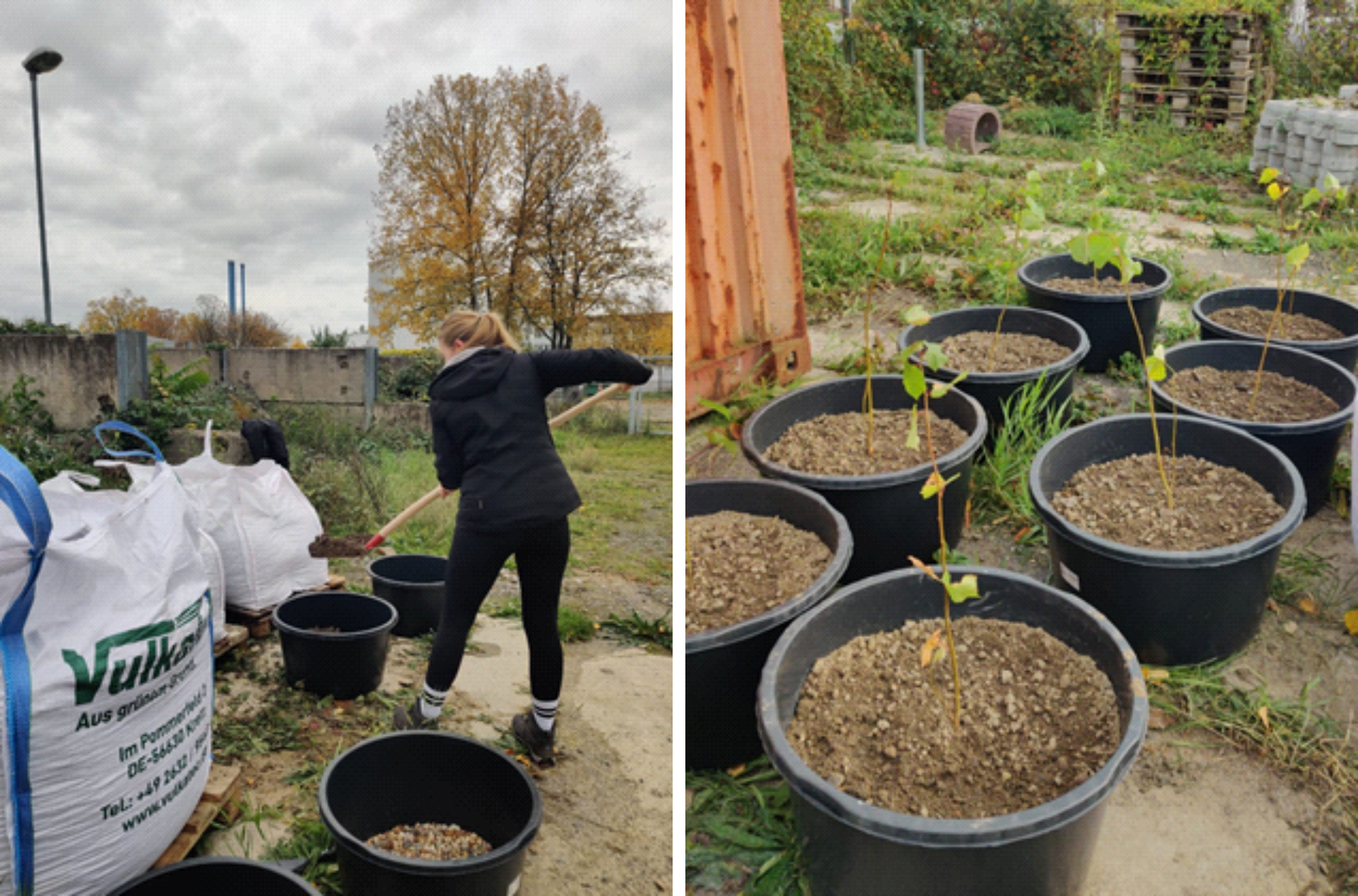
Flooding events driven by global change not only reshape landscapes but may also create hotspots for antimicrobial resistance. Riverine floodplains, essential for water retention and biodiversity, are particularly vulnerable to the accumulation of contaminants such as metals and antibiotics. These pollutants, transported by rivers and deposited during floods, can disrupt soil ecosystem functions and drive the proliferation of antibiotic and metal resistance genes. While metal resistance may enhance soil resilience, the spread of antibiotic resistance within microbial communities poses a major public health threat, contributing to the failure of medical treatments and millions of deaths annually. Because metal and antibiotic resistance genes often coexist on the same genetic elements, their presence and spread are intrinsically linked. As a result, co-contaminated floodplains may serve as reservoirs for resistance genes, facilitating their transfer into both natural and human-associated environments. To better understand these processes, we combine field studies—identifying environmental drivers of resistance gene proliferation in riverine floodplains—with controlled greenhouse experiments, where we simulate flooding events and contamination in floodplain grasslands. By tracking contaminants in pore water, quantifying resistance genes in soil, and monitoring plant health over time, we gain valuable insights into how resistance genes persist and spread. By integrating soil geochemistry, microbiology, and plant ecology, this research advances our understanding of how future flooding events may accelerate the development of antimicrobial resistance. Our findings contribute to broader efforts aimed at predicting and mitigating antimicrobial resistance as a consequence of pollution, land use, and climate change.
People involved: Mara Breit, Dominik Buob
This project is funded by the German Research Foundation (DFG) and is in collaboration with the Worrich lab
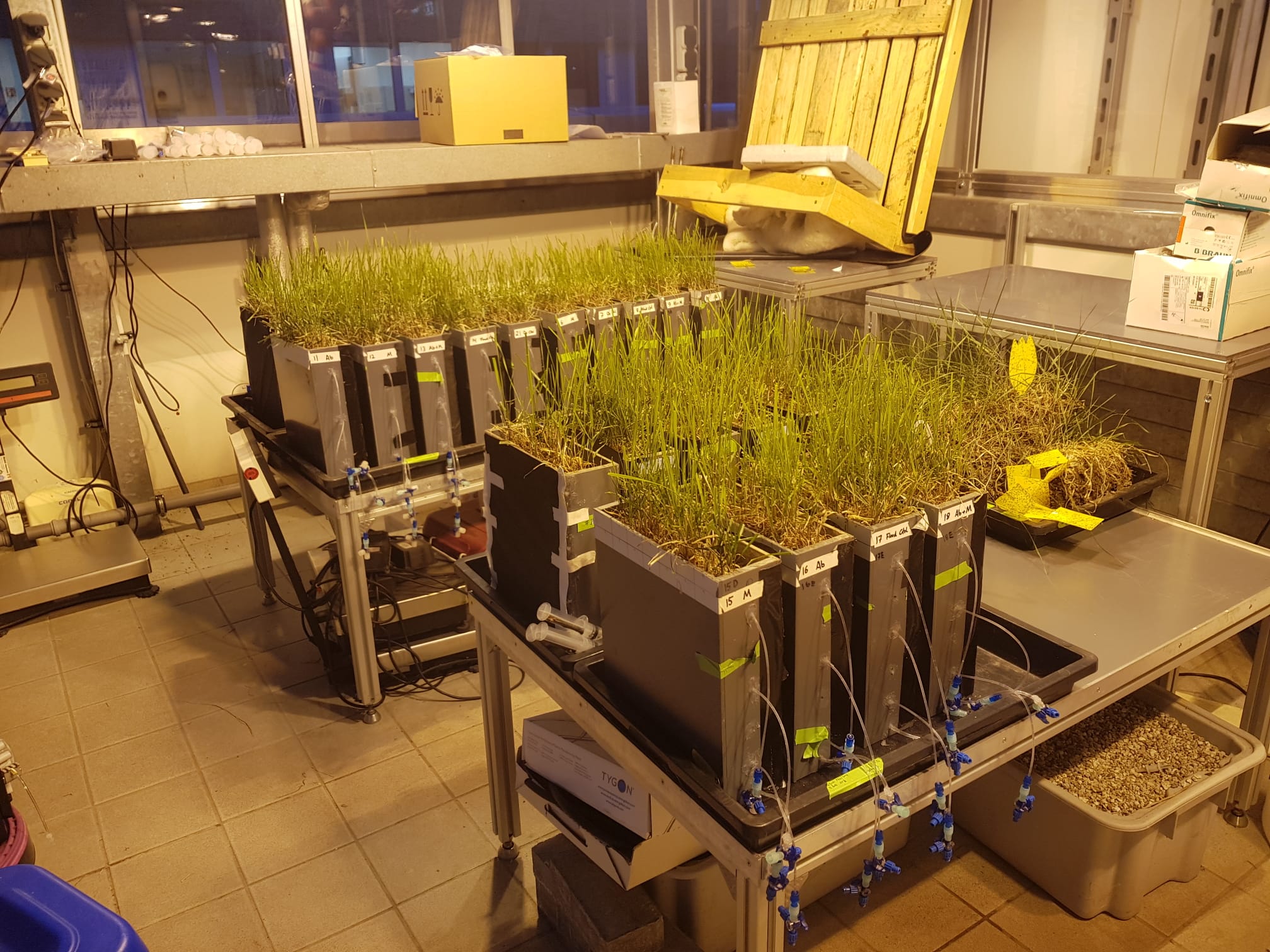
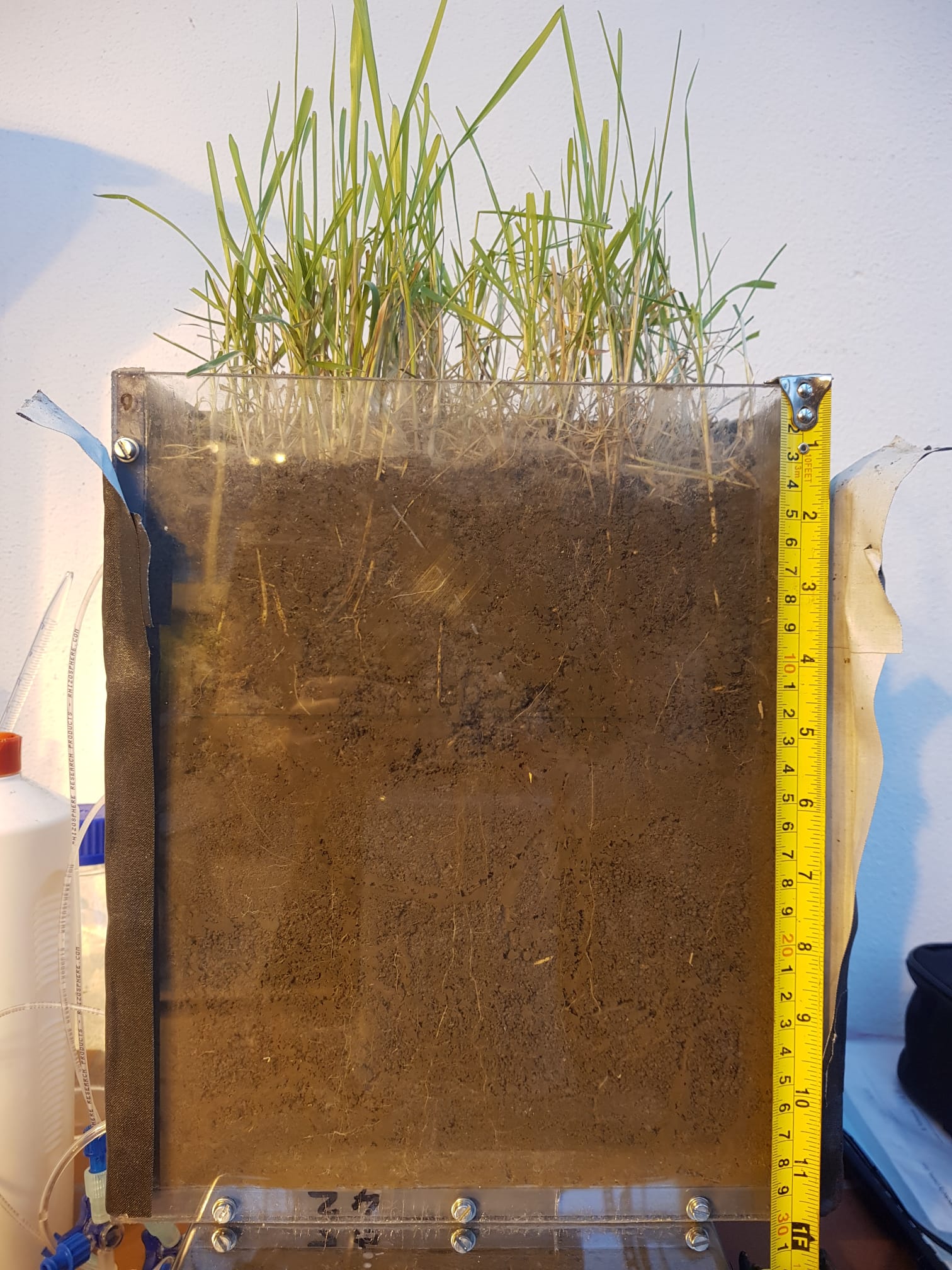
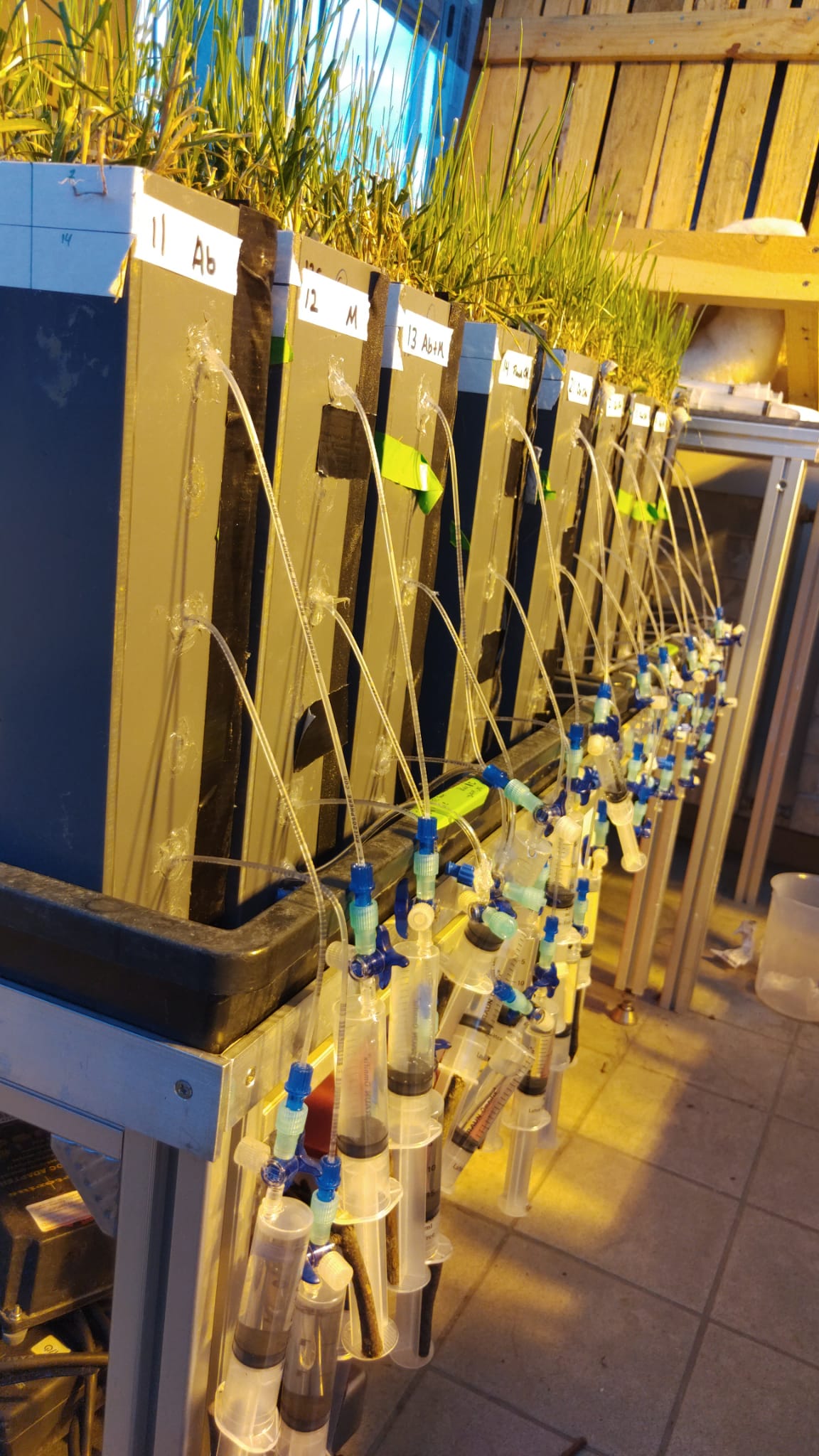
We offer expertise in:
- Field campaigns
- Complex plant-growth and soil incubation experiments in greenhouses and labs
Our soil lab offers the following equipment:
- Mars6 CEM Microwave digester for plant and soil samples, 40 sample slots
- Large scale presens imaging optodes for CO2, O2 and pH
- MicroResp system (11 parallel set-ups)
- Multi-gas dispenser for anoxic work
- pH, electrical conductivity, DO, redox electrodes for field and lab
- Shakers, scales, water baths, stir plates, vortexers, centrifuges, autoclave, microwave, fridges and freezers for soil storage
- XRF for elemental quantification in solid soil and plant samples and liquids (up to 25 samples per run)
- TOC analyzer for solid phase C and liquid phase C and N quantification for small sample volumes and high sensitivity
Our approaches in Plant Science include:
- Plant material digestions for metal content quantifications
- Biomass assessments
- Transcriptomics of plant tissues
- Photometric-based enzymatics
- Synchrotron based imaging of metals and other elements across plant tissues
- WinRhizo and WinRhizoTron software for root architecture analysis
Our approaches in Microbial Ecology include:
- Enrichment and isolation of microorganisms from environmental samples
- Cultivation of microbial communities
- Respiration assessments
- 16S rRNA and functional gene and transcript sequencing and qPCR
- Metabolomics
Our approaches in Soil Geochemistry and Mineralogy include:
- Standard soil geochemical analysis (GC, DOC, HPLC, etc.)
- Soil extractions (aqua regia, metal and nutrient bioavailability assessments)
- Standard mineralogical tools (XRD, XRF, etc.)
- Planar optodes (Presens)
- Synchrotron based mineralogical analysis (XANES, EXAFS, elemental mapping)
Courses are offered through the Geoscience Department of the University of Tuebingen.
- Winter Semester 2025/26: Biologie für Umweltnaturwissenschaften (introductory level Bachelor degree course): Module Flechten als Bioindikatoren und Holzabbau (co-teaching with Prof. Dr. Michaela Dippold, Dr. Kyle Mason-Jones, Dr. Ilonka Engelhardt)
- 09-20.03.2026: Block course (lecture, seminar and lab course) at Master degree level Rhizosphere Processes in a Changing World (6 ECTS)
- Summer Semester 2026: Geosphere-Biosphere interactions (Mandatory Master degree level course, co-teaching with Prof. Dr. Michaela Dippold and Dr. Ilonka Engelhardt)
Bachelor Theses:
- Lena Haas: Impact of root oxygenation versus root exudation on greenhouse gas release in a thawed permafrost soil. 2024, U of Tübingen
- Charlotte Roschke: Acclimating Italian paddy soil to heavy metals and to different climatic conditions for use in experiments. 2022, U of Tübingen
- Jenin Fleischmann: Soil microbiome adaptation to metal stress under different farming practices. 2022, U of Leipzig
- Julia Kost: DNA/RNA Stability in Environmental Samples. 2021, U of Tübingen
- Alexandra Glöckle: Effect of cadmium on (a)biotic greenhouse gas emissions in agricultural soil. 2020, U of Tübingen
- Katja Lenge: Long term effect of cadmium contamination and climatic stress on soil microorganisms and greenhouse gas emissions. 2020, U of Tübingen
- Sebastian Müller: Cadmium stress combined with elevated temperature will increase greenhouse gas emissions more than elevated carbon dioxide combined with or without cadmium. 2020, U of Tübingen
Master Theses:
- Dominik Buob: Proliferation of individual and coupled resistance genes under metal and antibiotic contamination in floodplain grasslands. 2025, U of Tübingen
- Sarah Keldenich: Effect of artificial versus field-sampled root exudates on soil biogeochemical processes and greenhouse gas emissions along a permafrost thaw gradient. 2025, U of Tübingen
- Jessica Hamm: Climate change vs. cadmium: Which one has a stronger impact on nitrogencycling in soils under phytoremediation. 2025, U of Bayreuth
- Noah Fruth: Uptake and degradation of DEHP and naphthalene via plant-microbe interplay. 2025, U of Halle
- Shital Khadela: Understanding Rhizobiome dynamics of Spinach under climate-induced heavy metal (Cadmium-Cd) stress in organically and non-organically managed soils. 2024, Hochschule Anhalt
- Natasha Kalantar: Comparative biogeochemical analysis of Arabidopsis halleri and A. lyrata in heavy metal contaminated soils: Insights into adaptation mechanisms. 2024, U of Leipzig
- Katja Lenge: Influence of plant-specific root traits on the release of greenhouse gases from thawing permafrost soils. 2024, U of Tübingen
- Paula Kosel: Biogeochemical adaptation of paddy soil to climate change. 2022, U of Leipzig
- Mara Breit: What determines intraspecific variability in heavy metal hyper-accumulation efficacy of Arabidopsis halleri? – Plant traits or soil biogeochemistry? 2022, U of Tübingen
- Esmira Bibaj: Cadmium (Cd) and climate-impacted greenhouse gas emissions from agricultural soils. 2022, Freiberg University
- Viktoria Skudlik: Combined impact of elevated atmospheric CO2 and soil Cd on the nitrogen cycle in agricultural soils. 2022, U of Tübingen

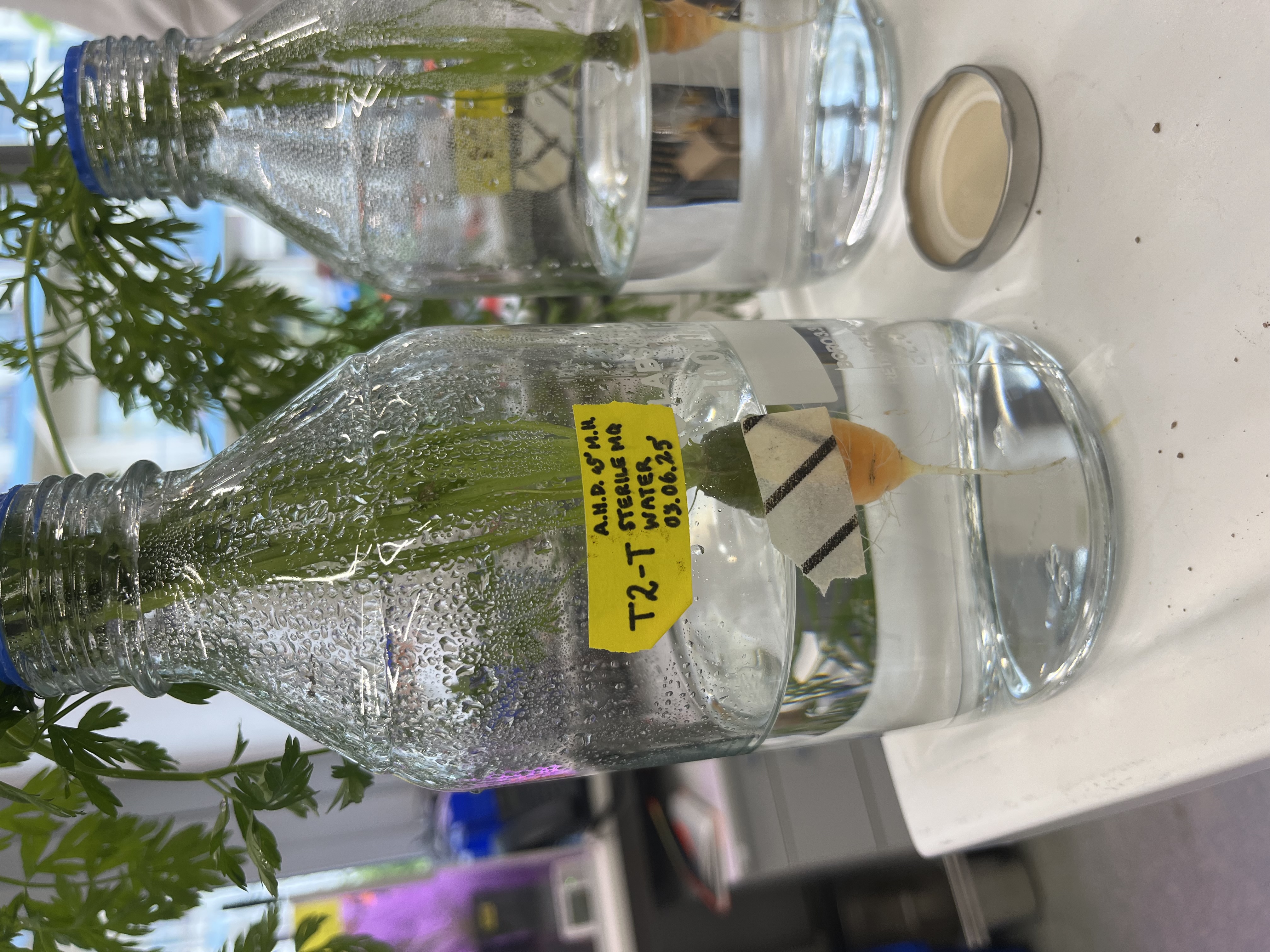
Photo credit: André Künzelmann

Photo credit: André Künzelmann

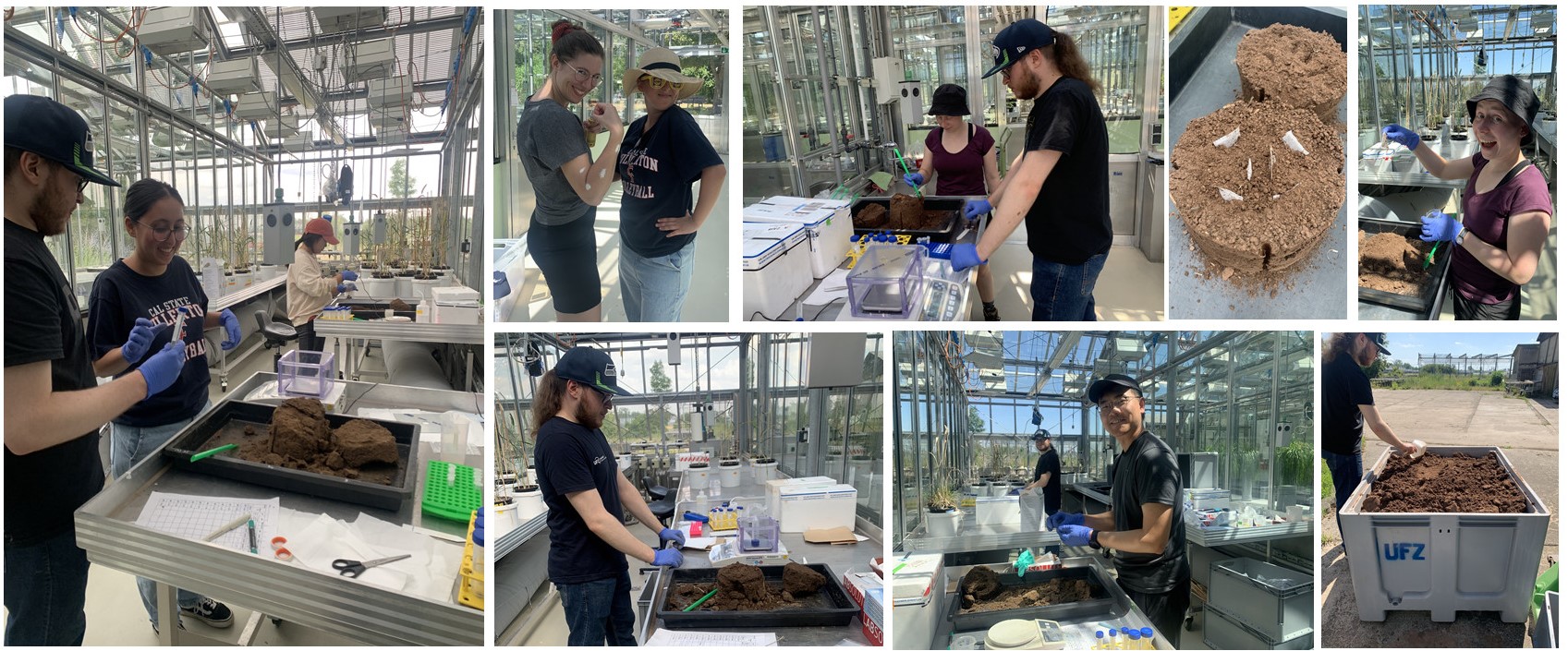
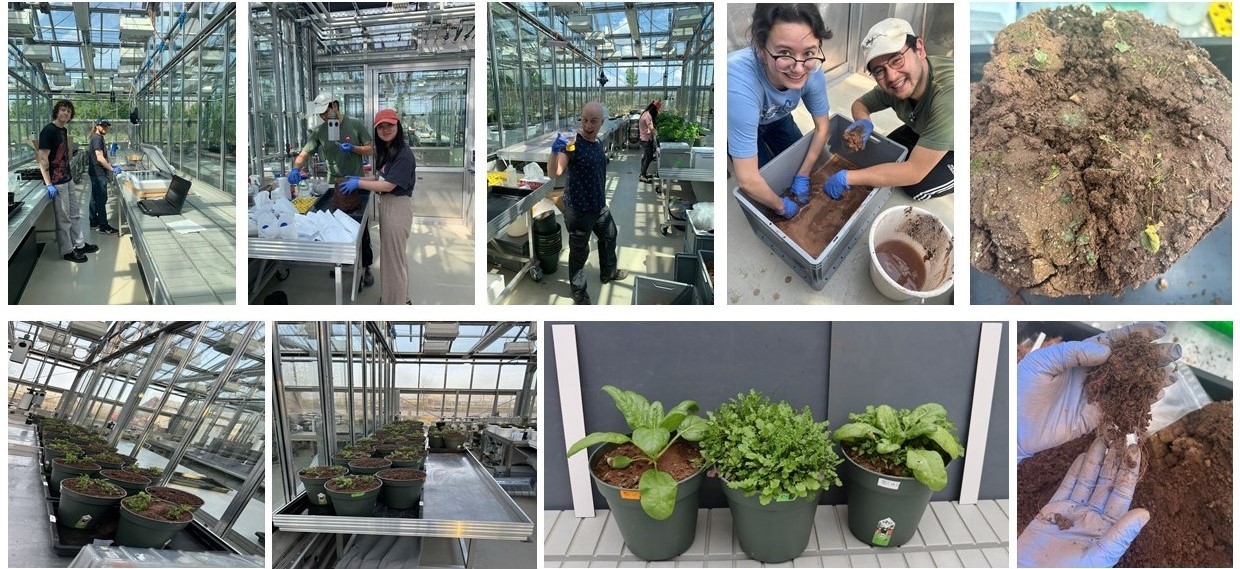

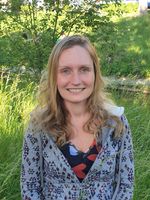
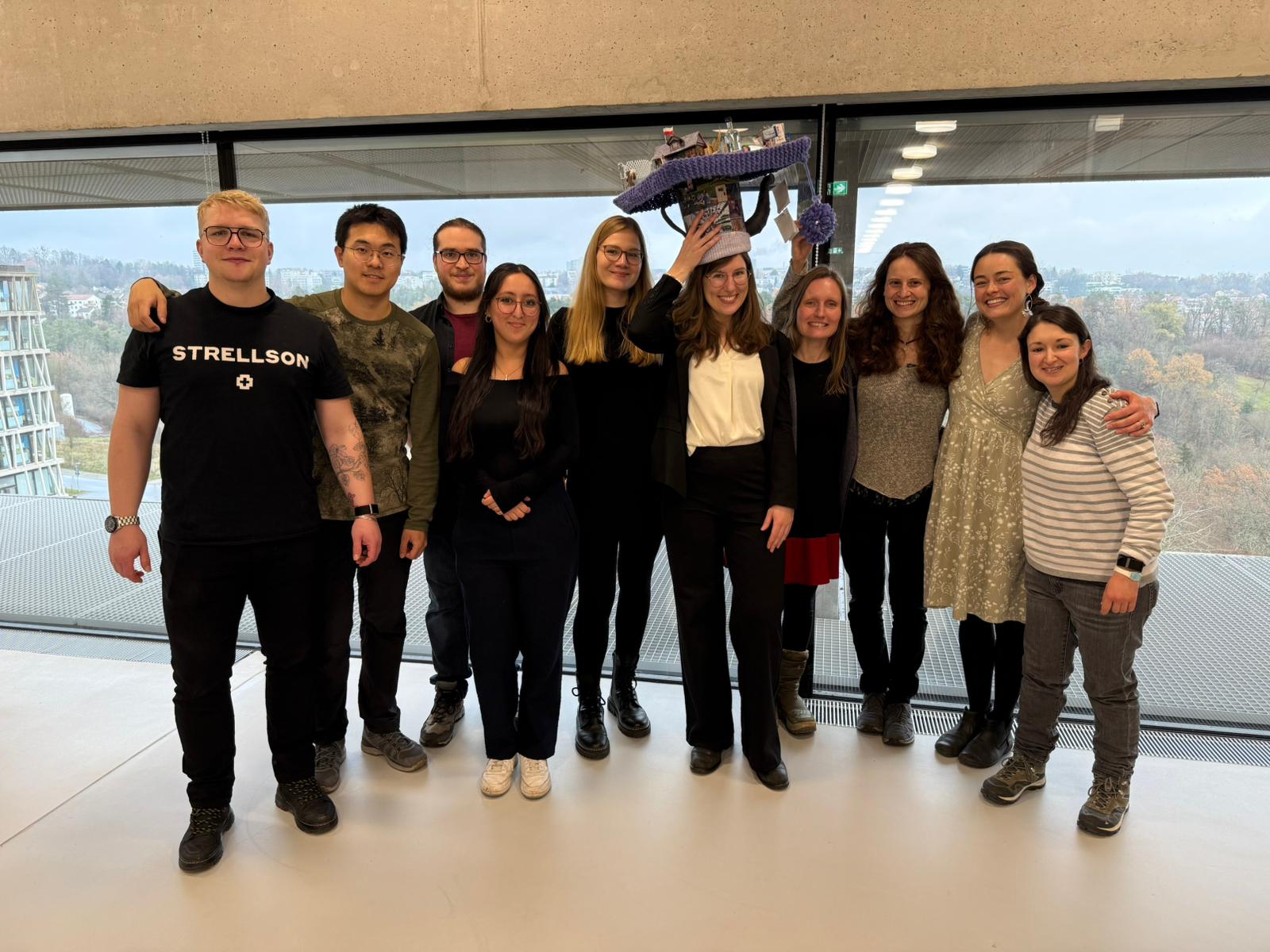
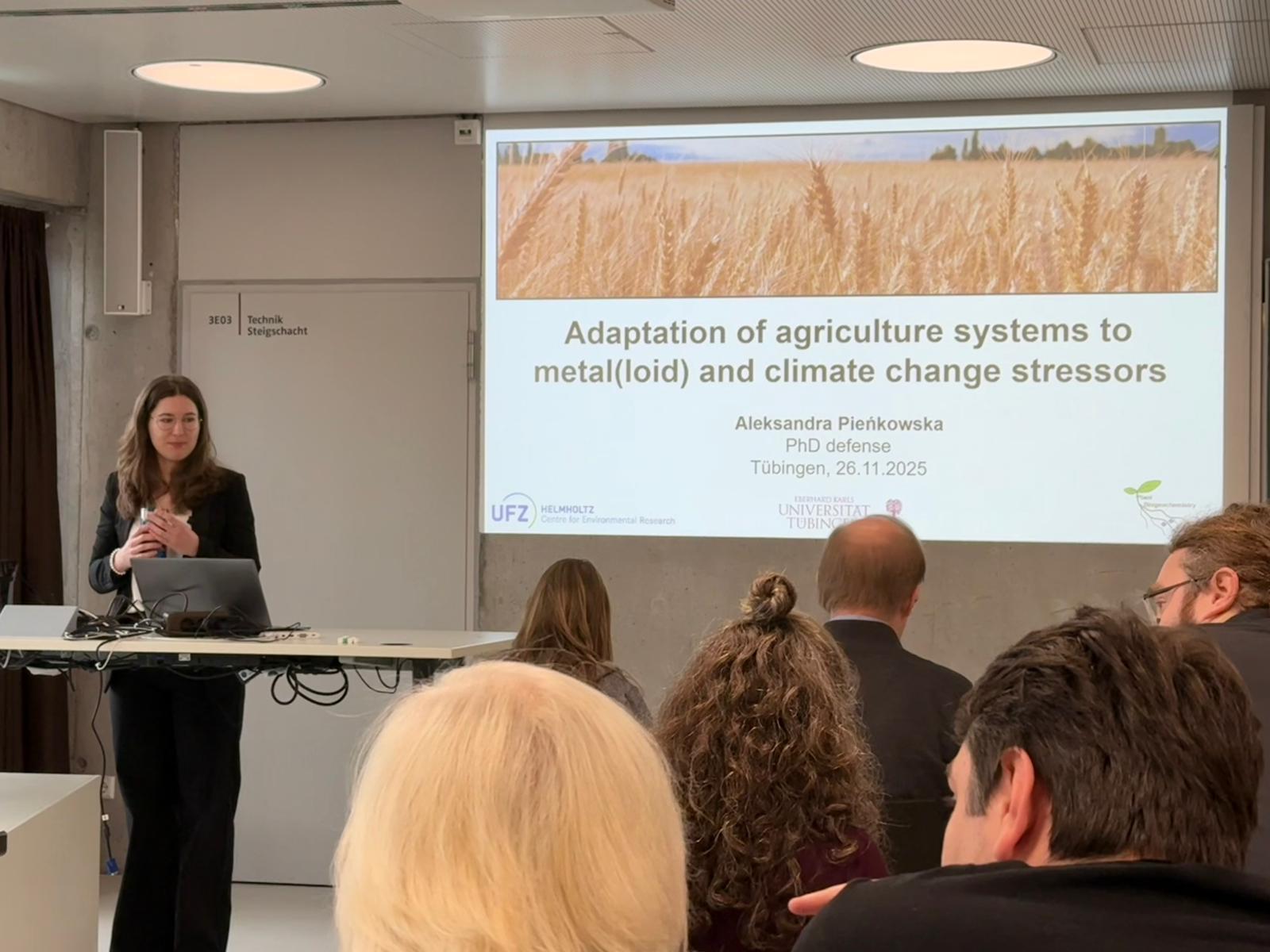
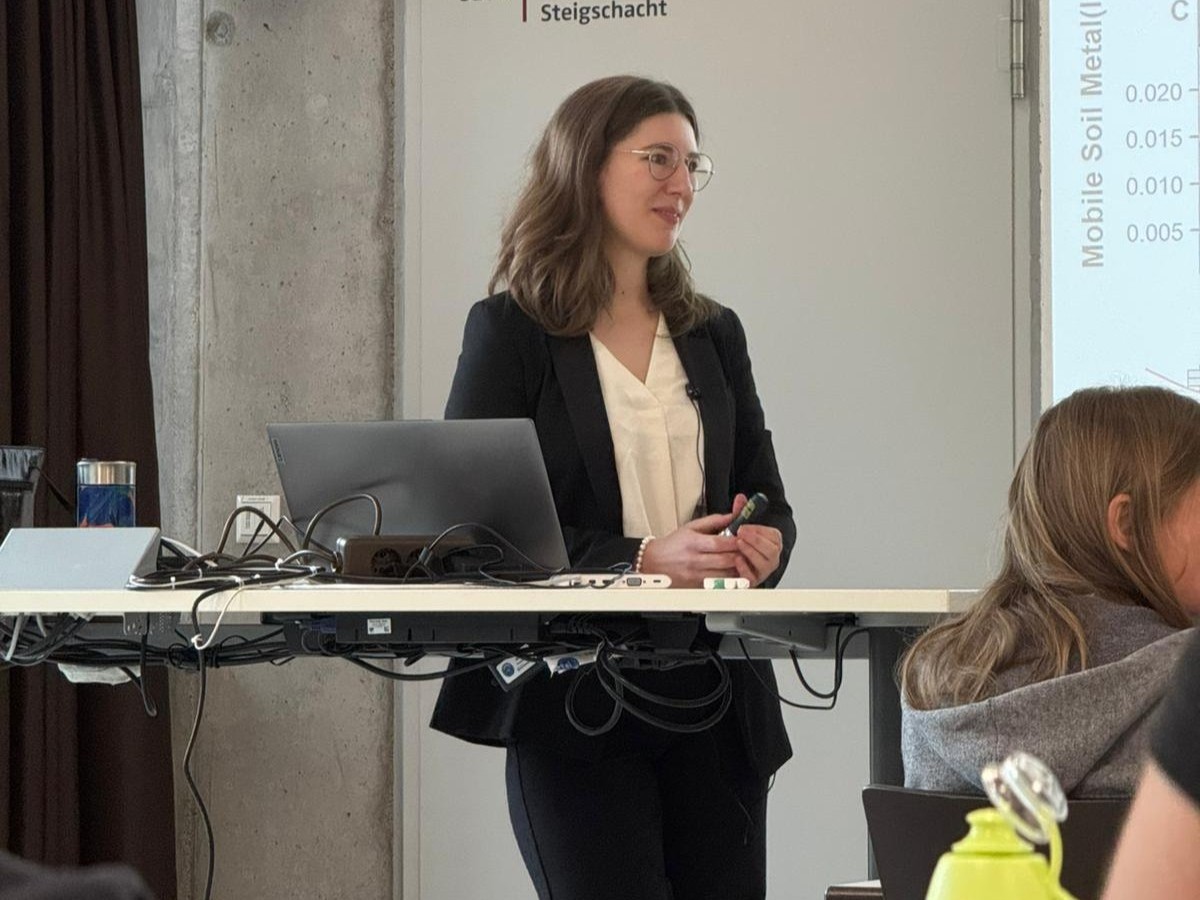
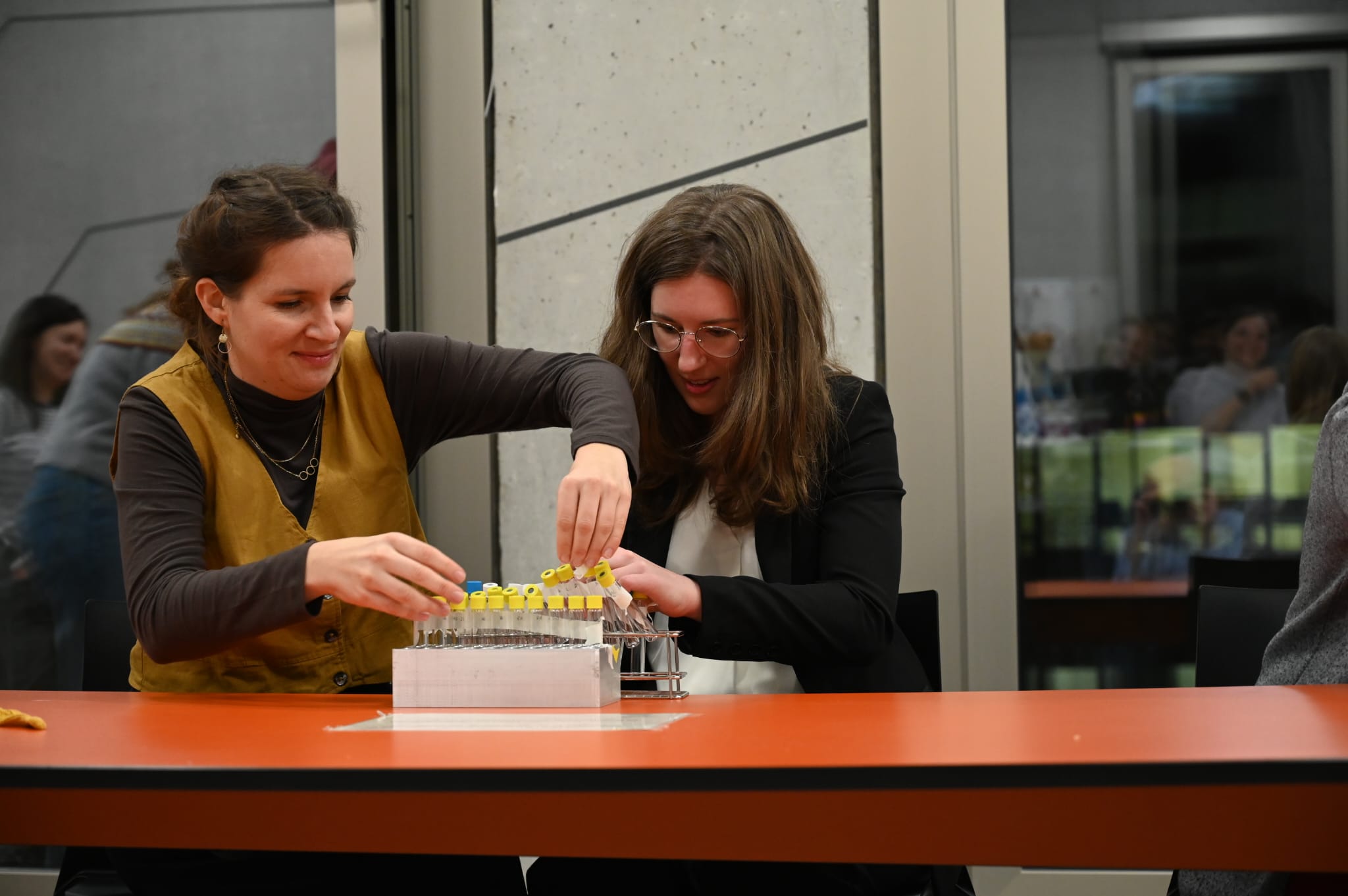
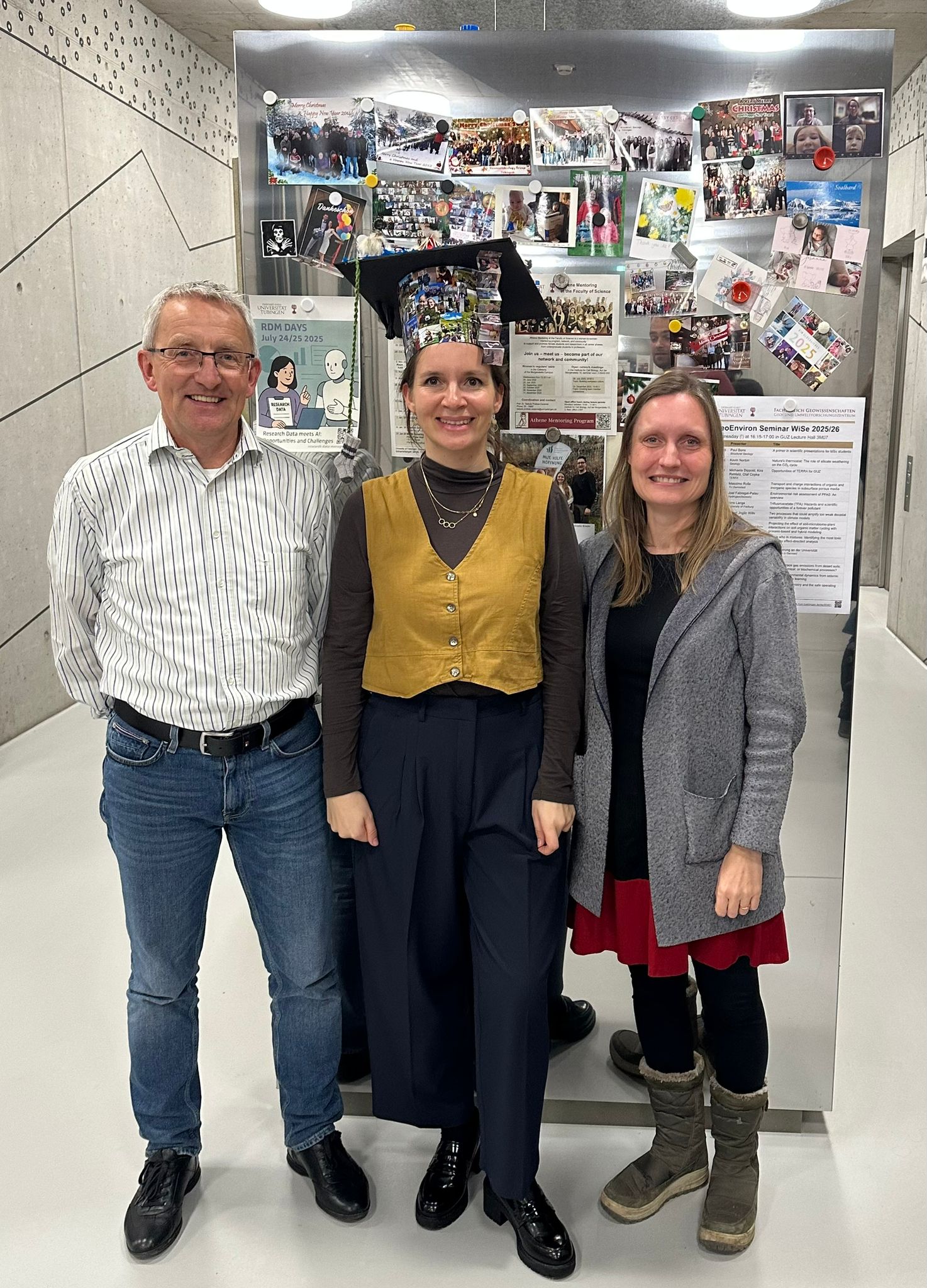
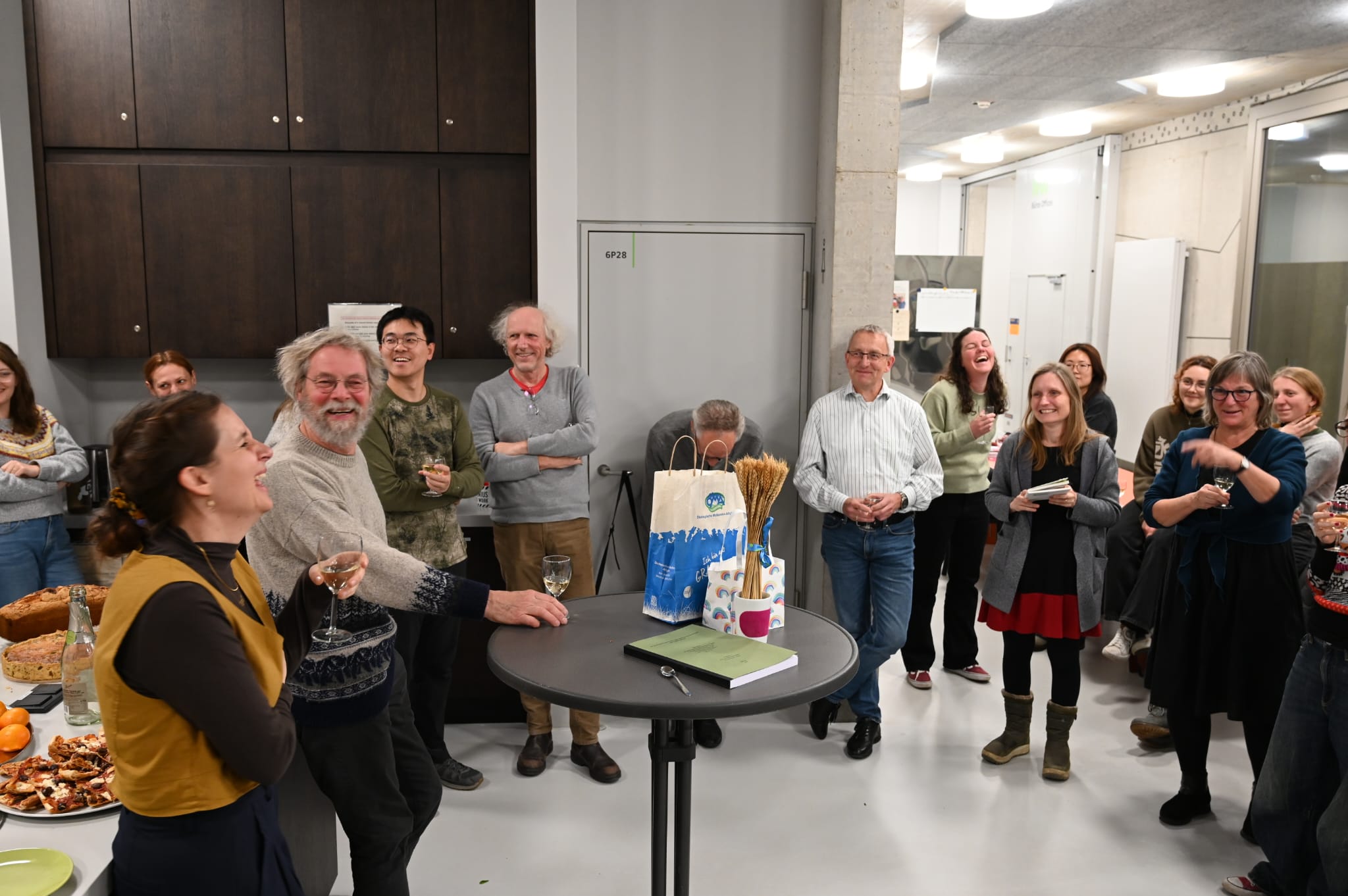
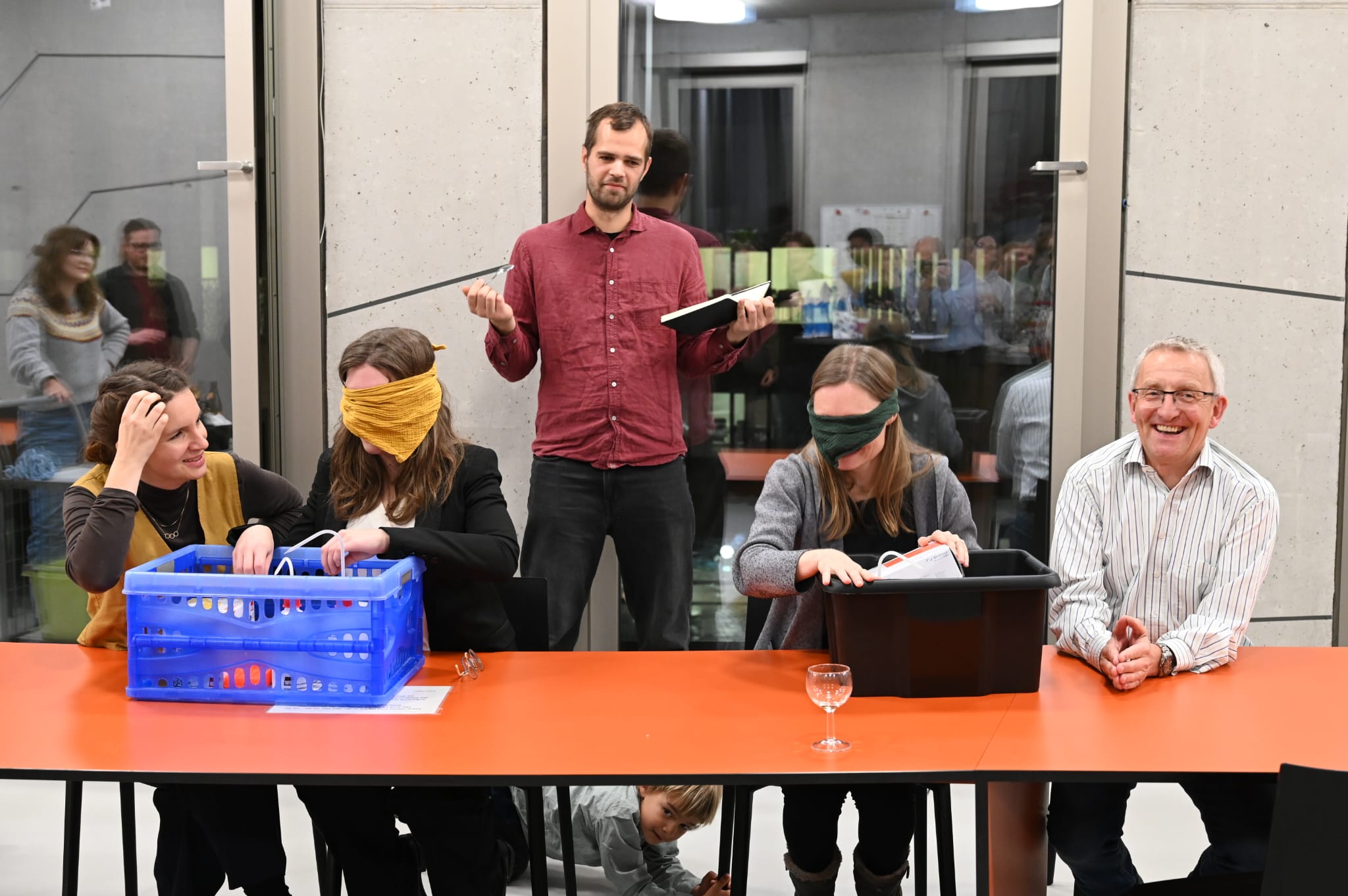
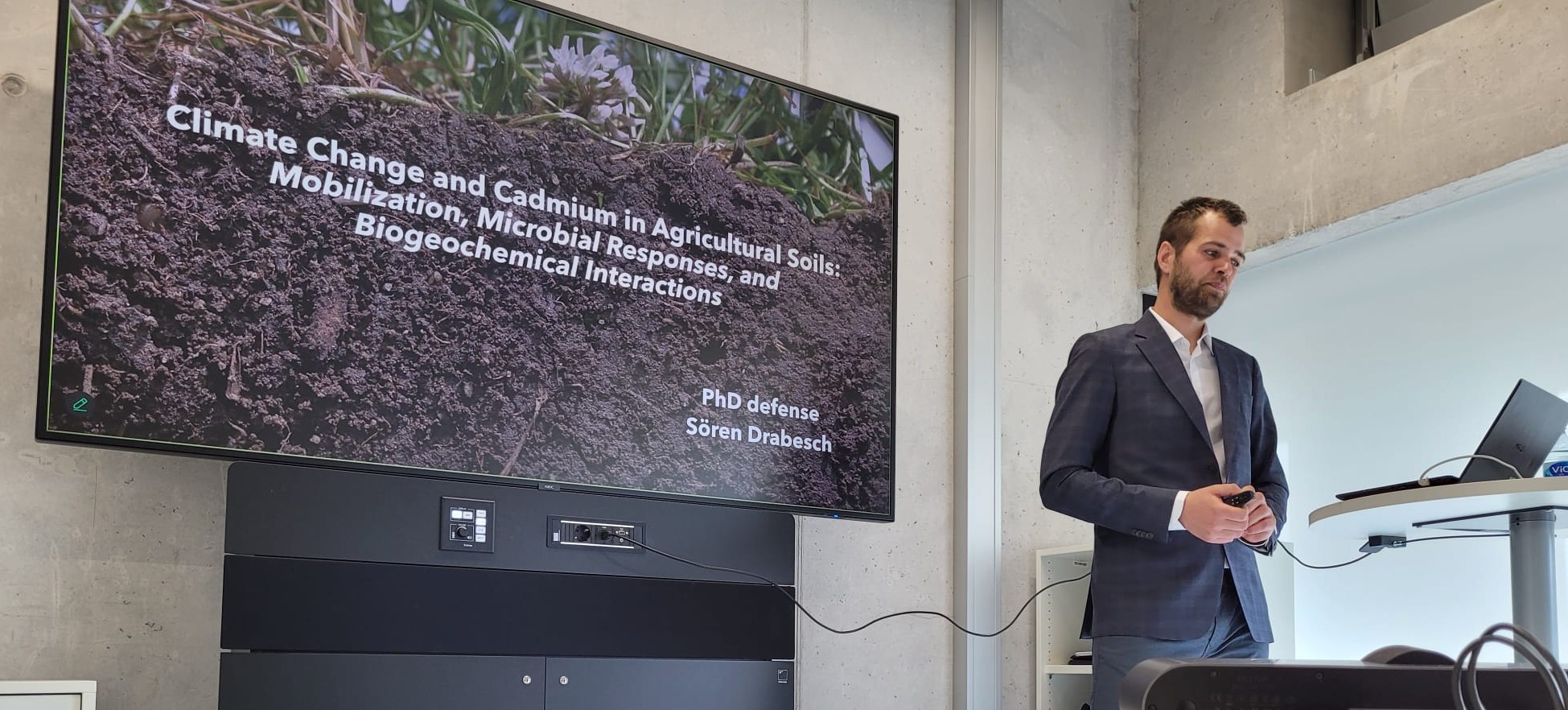
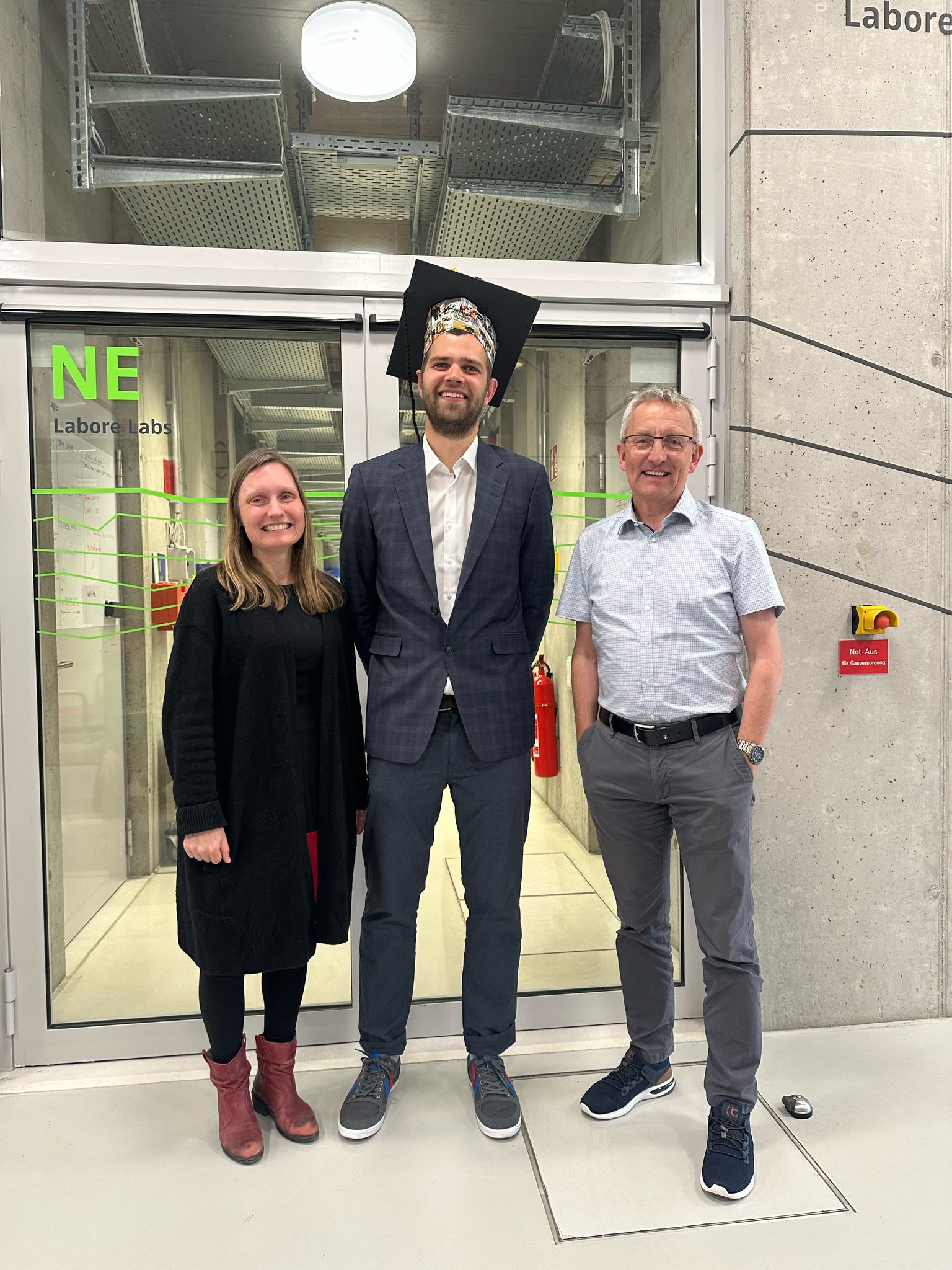
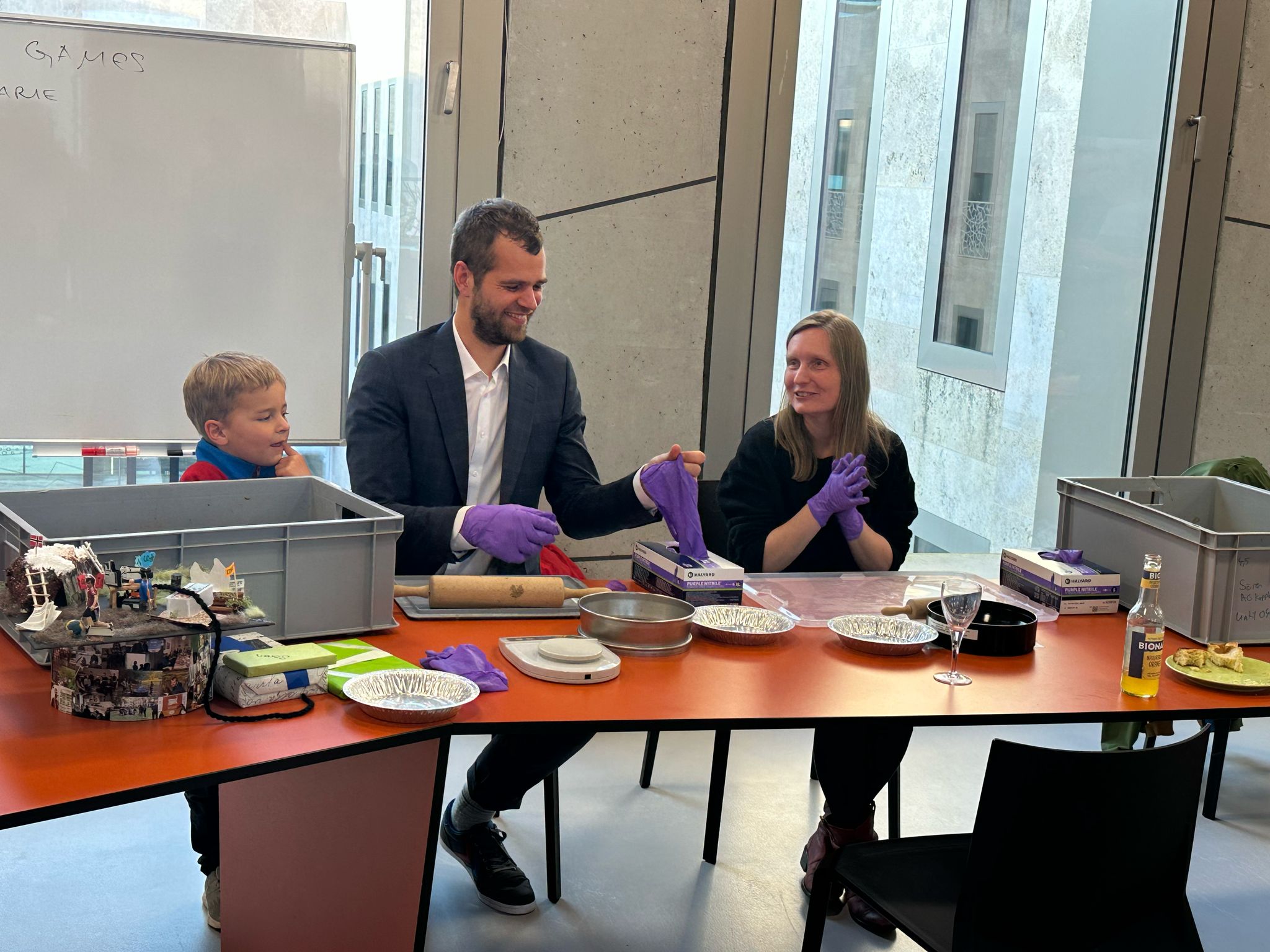




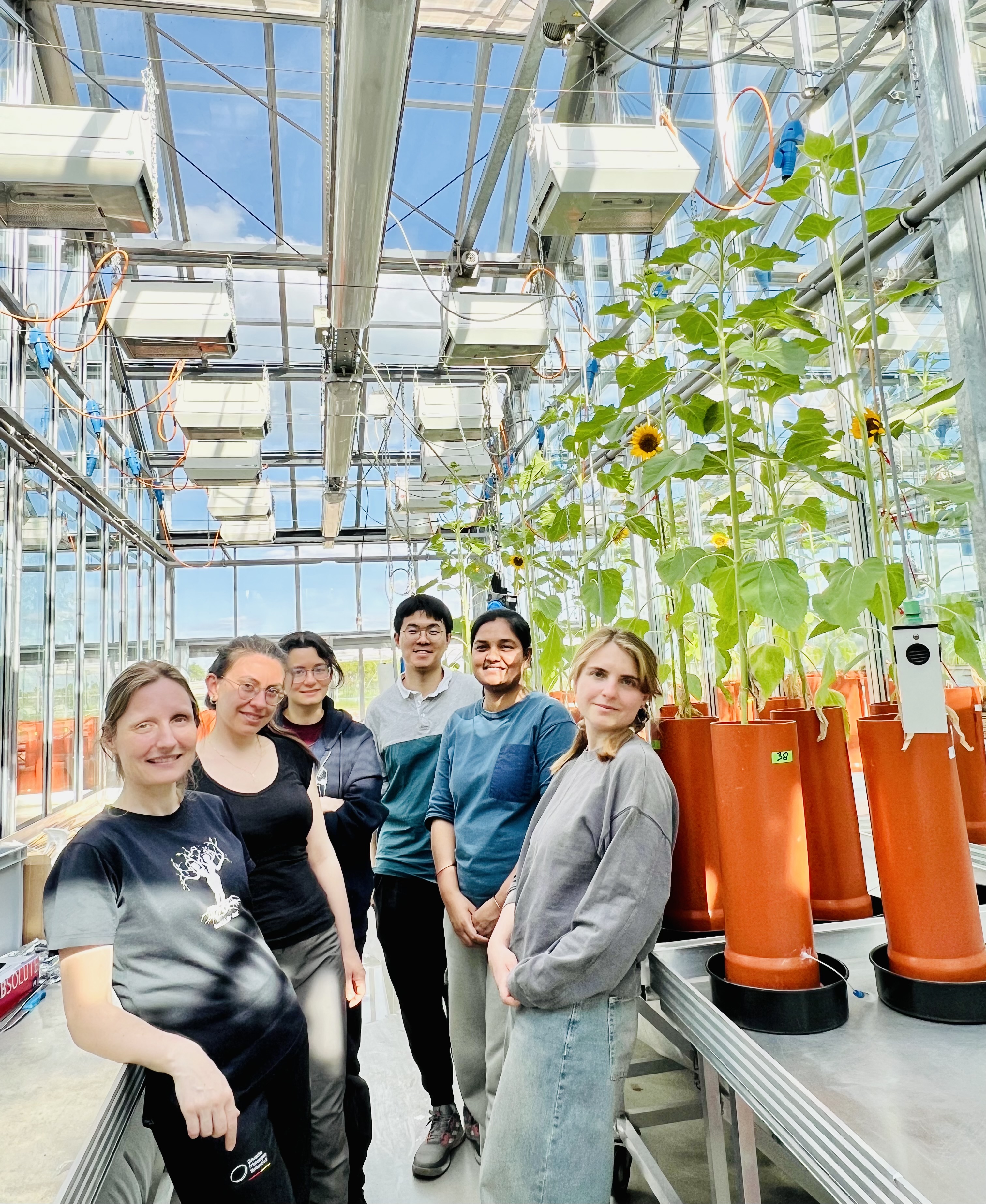
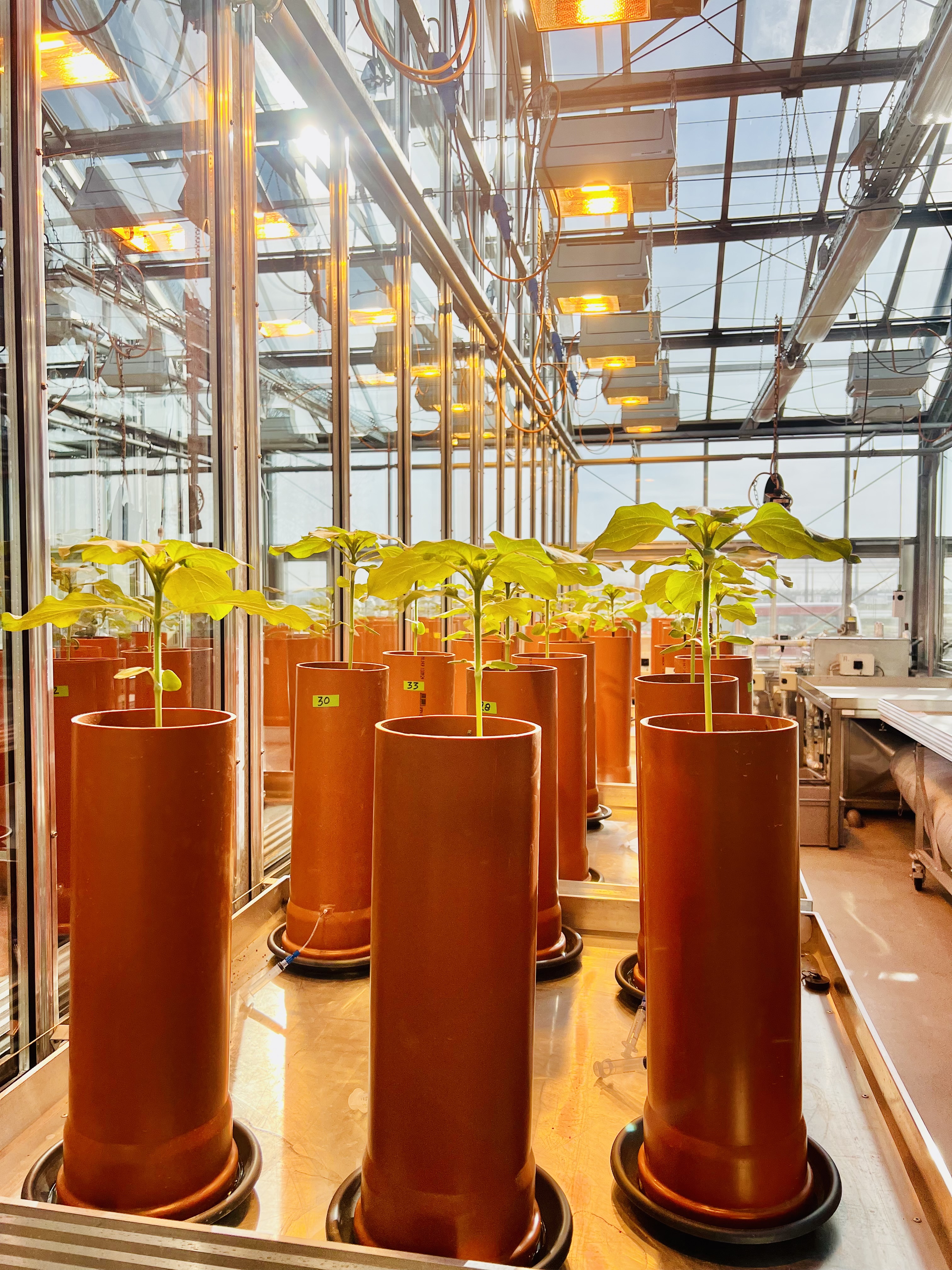
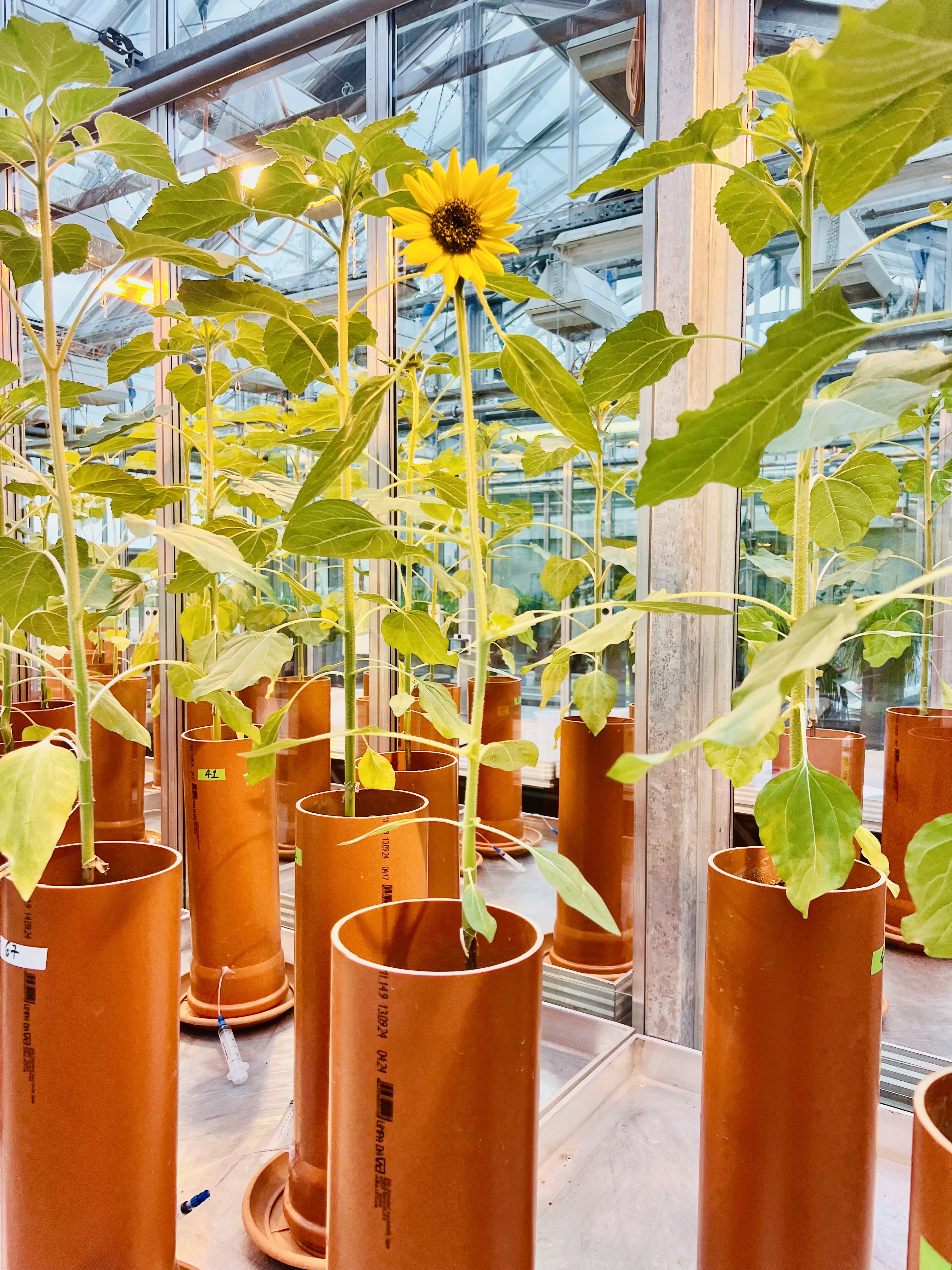
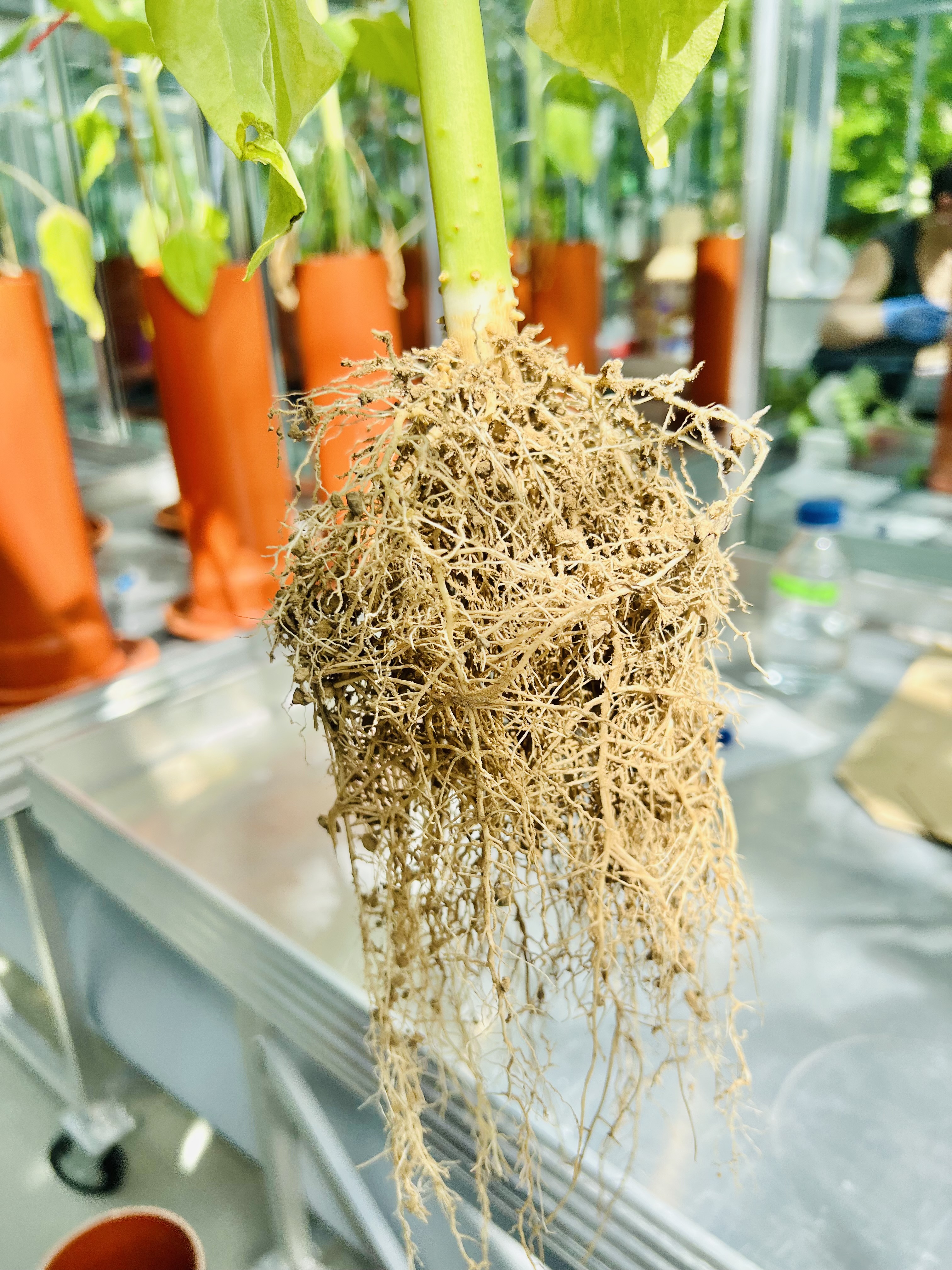
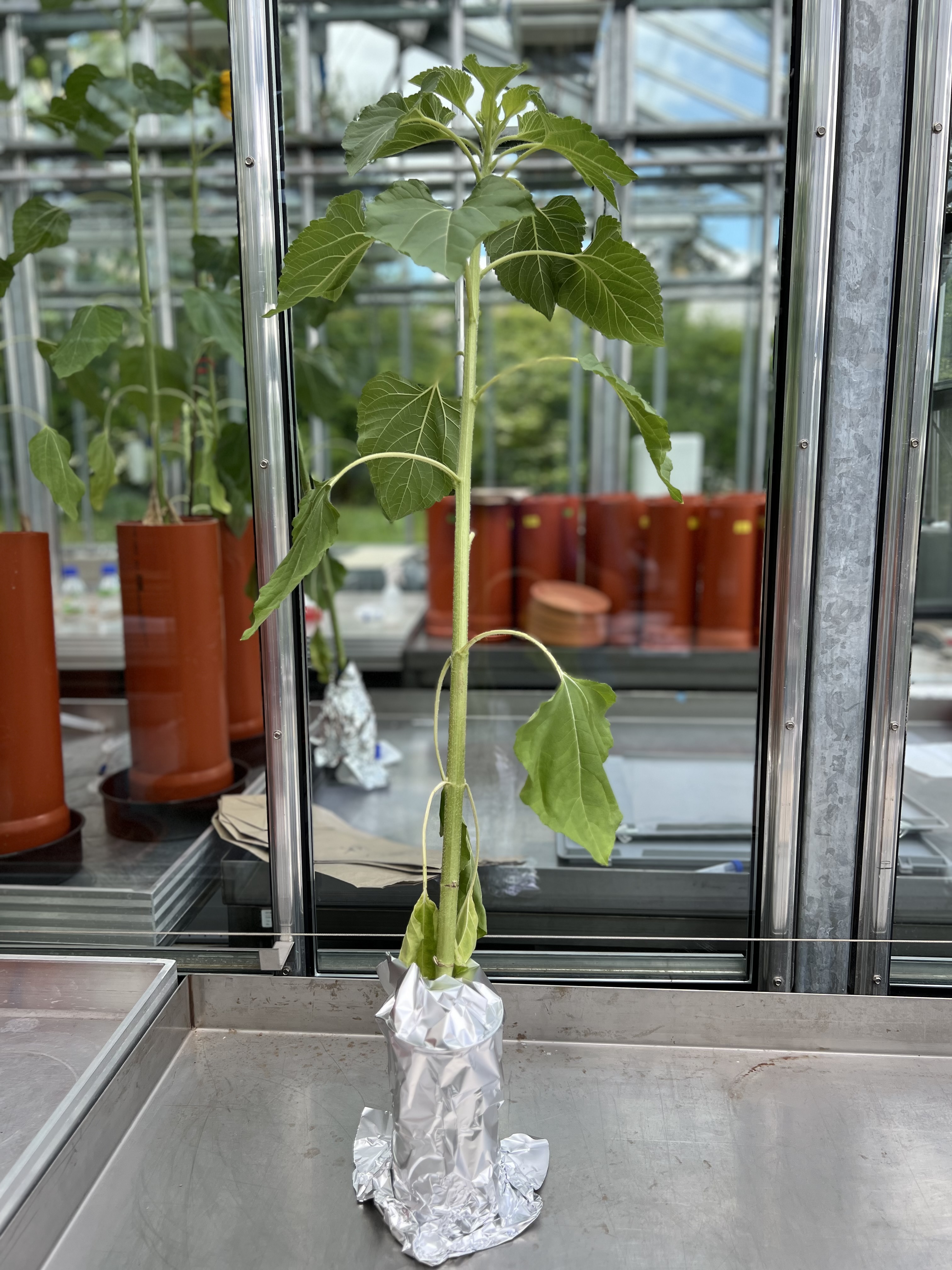
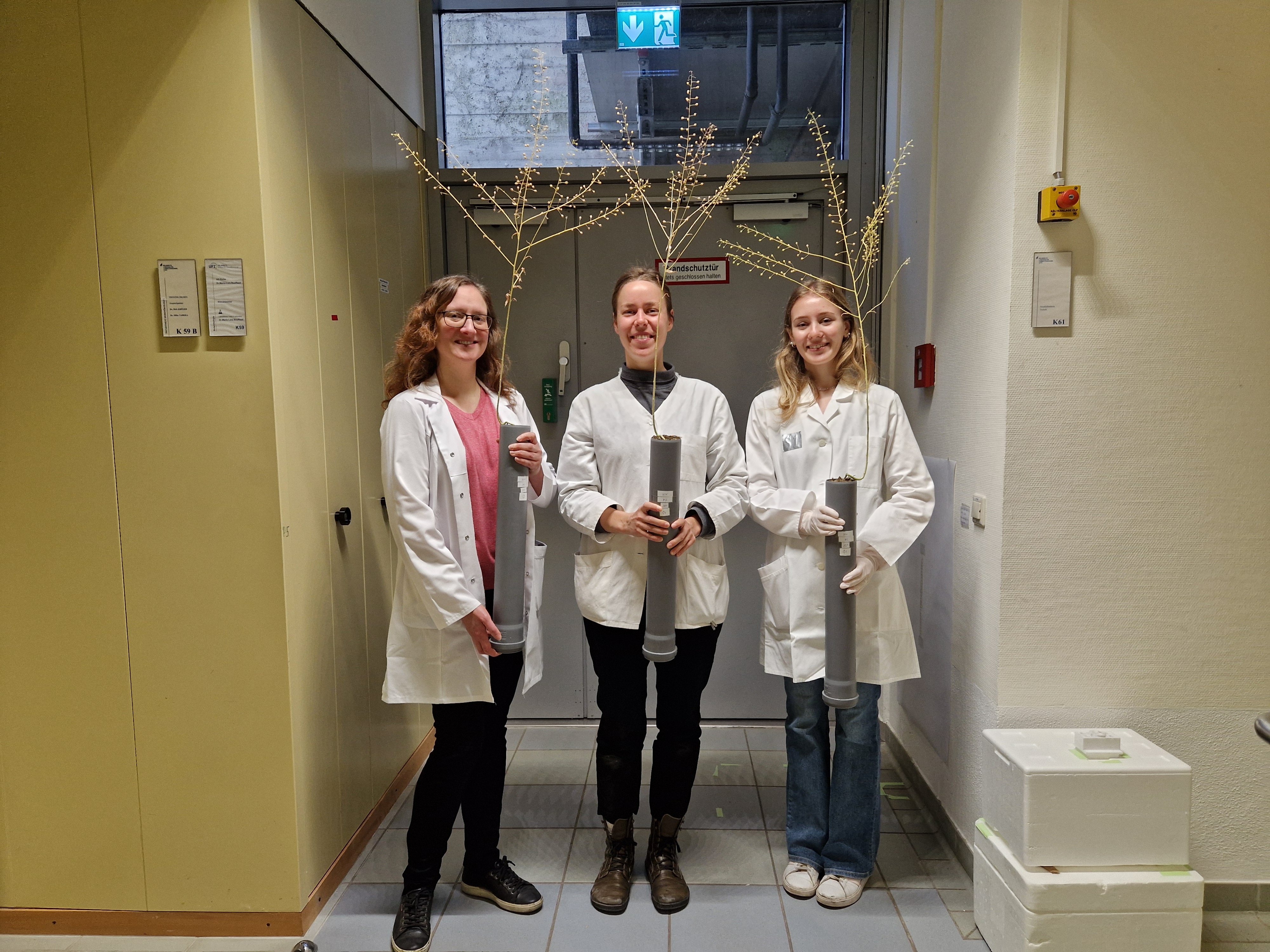
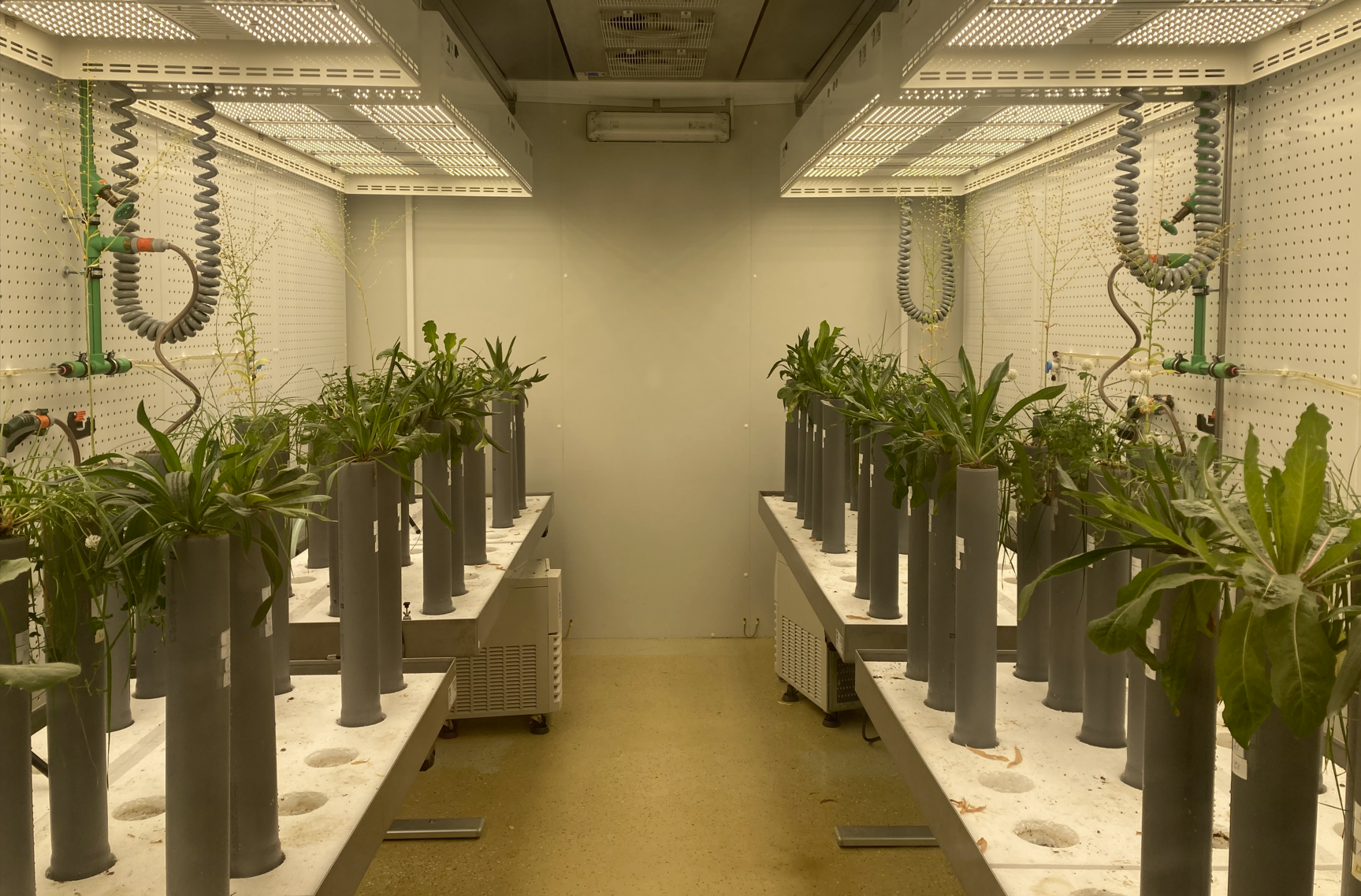
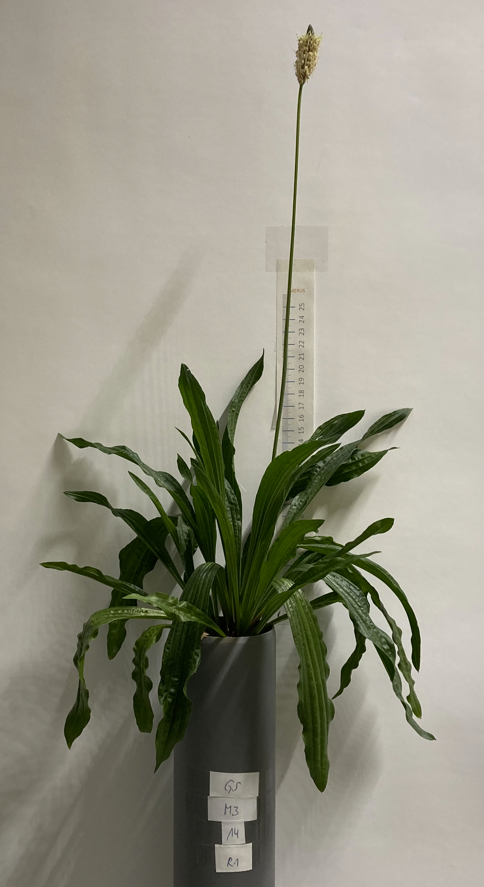
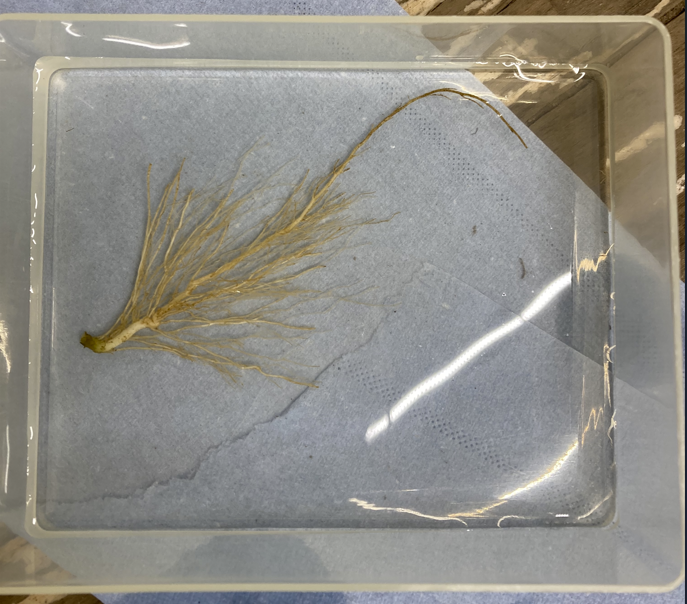
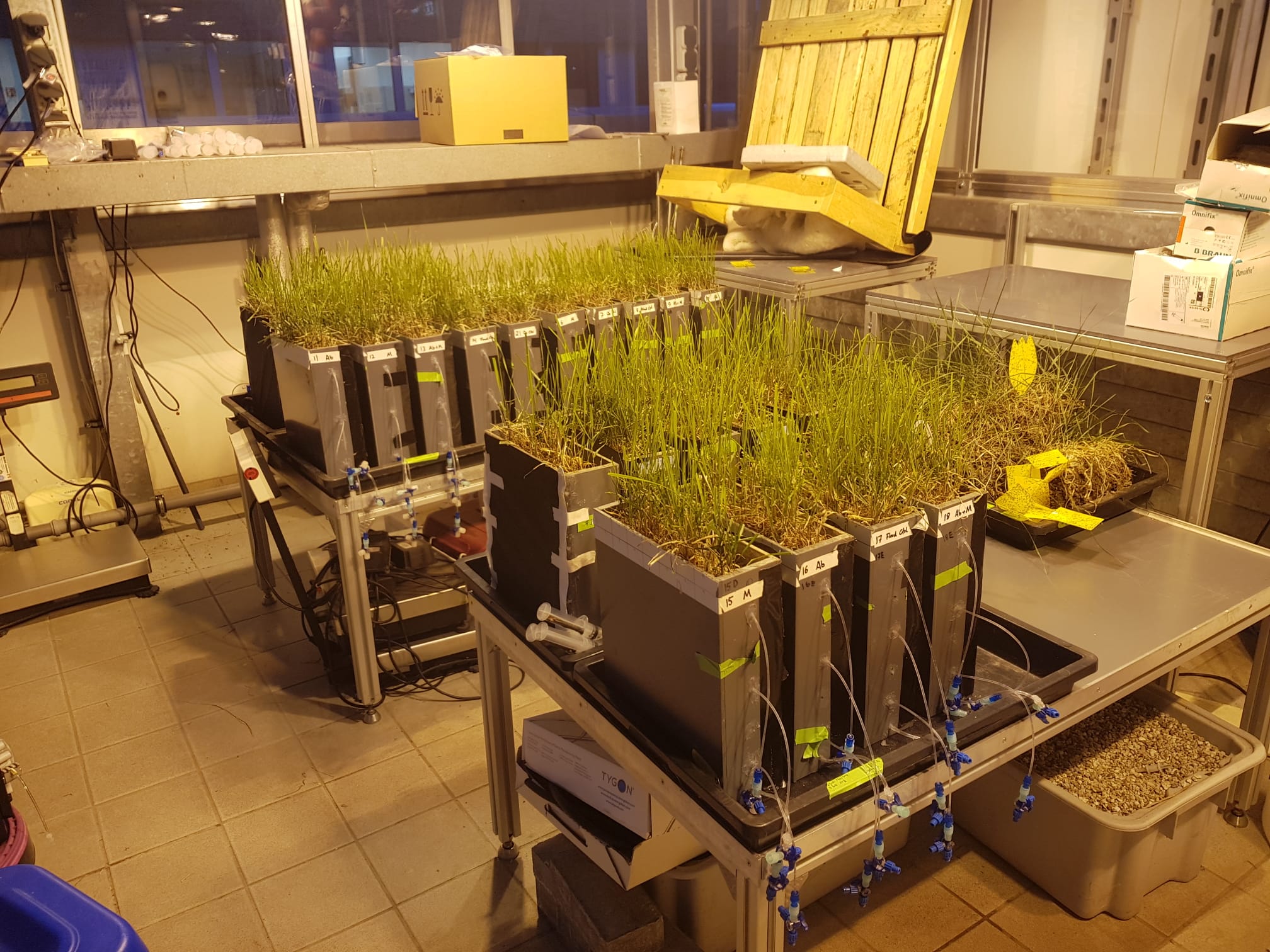
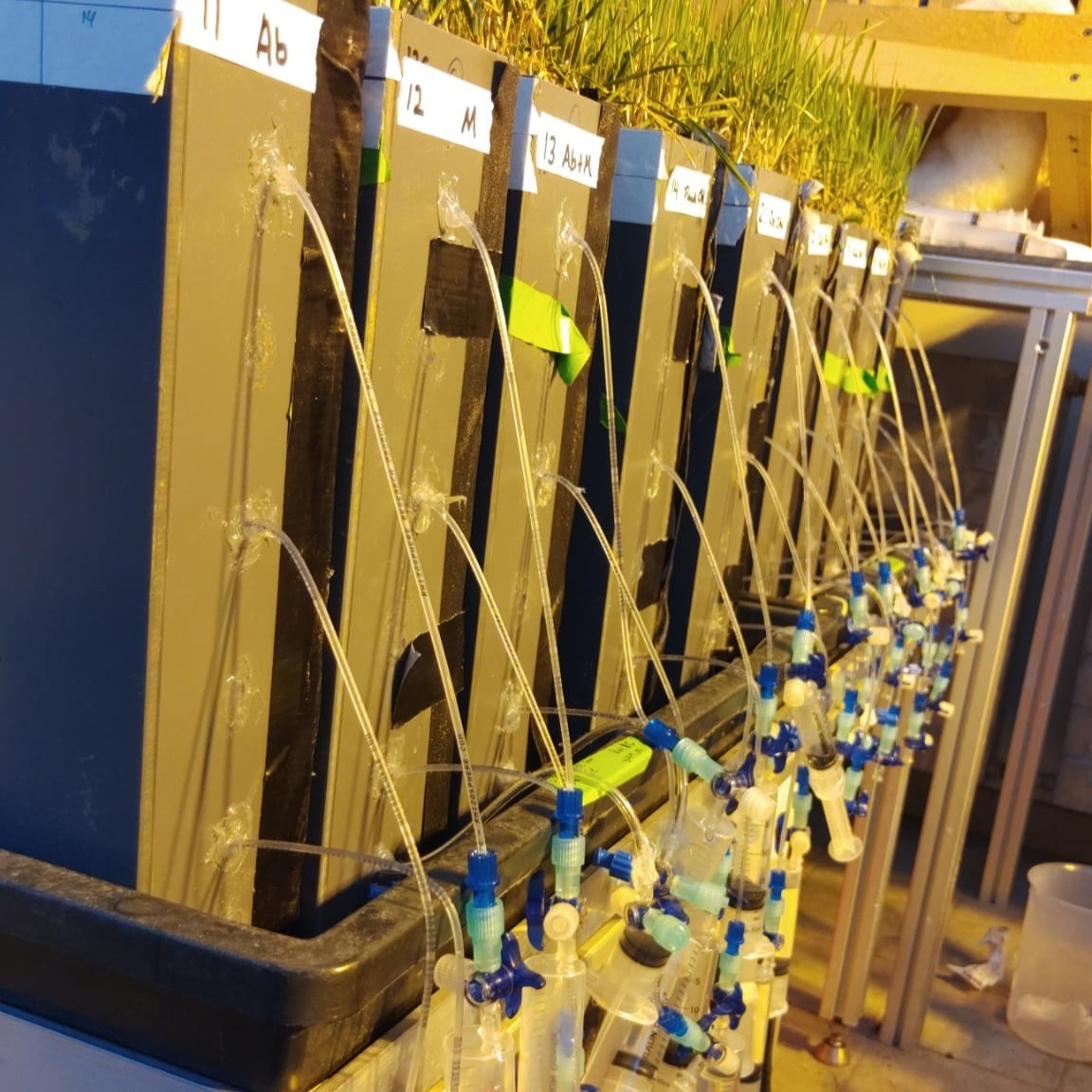
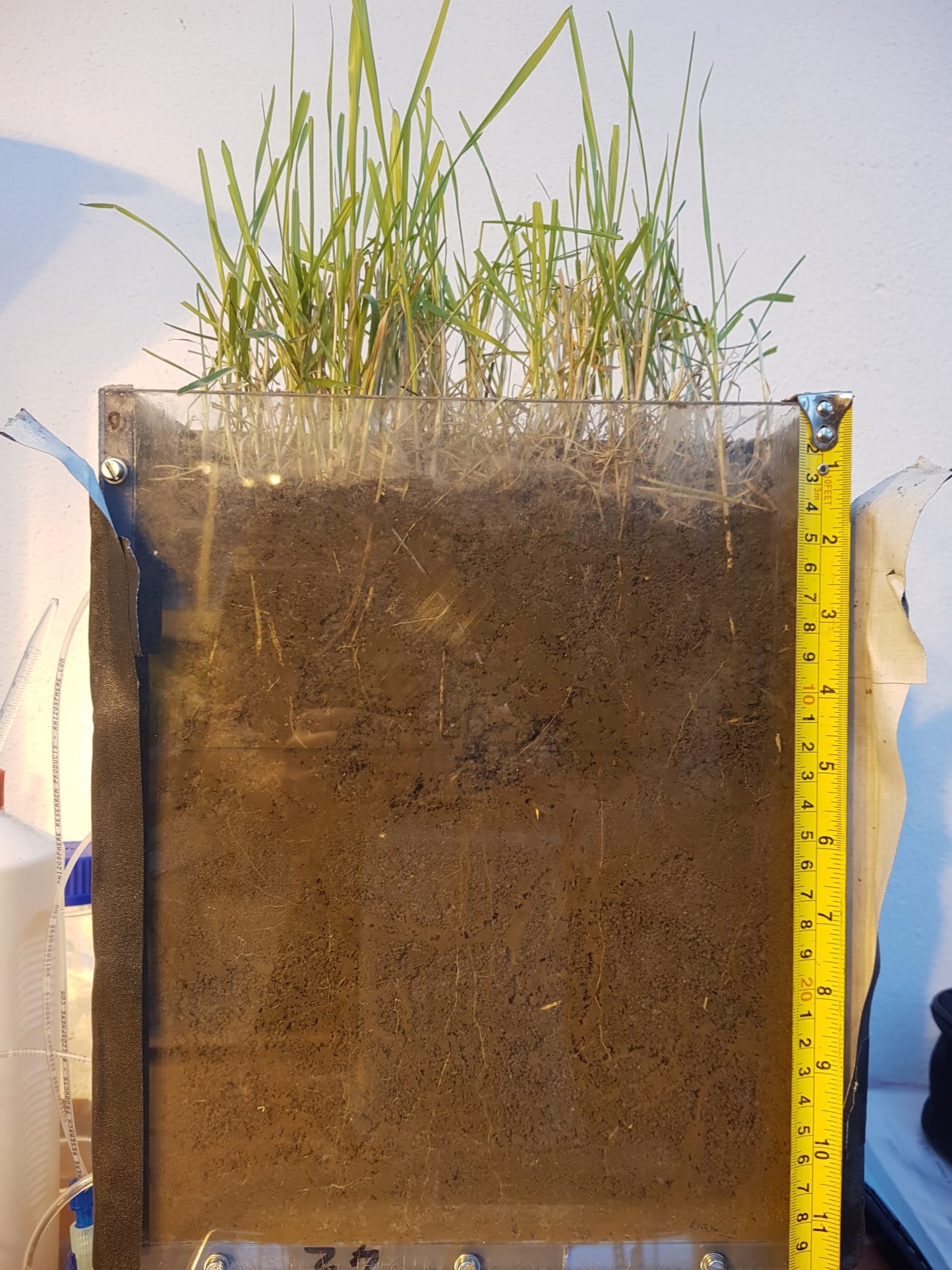
.png)
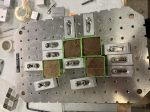
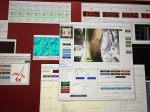
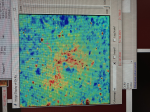
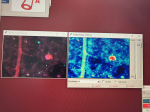
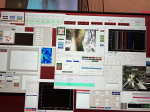
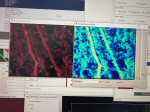
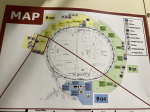
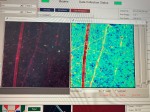
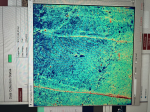
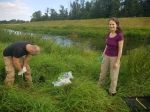
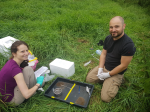
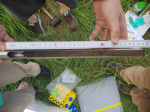
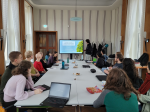
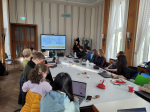
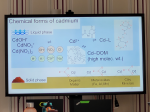
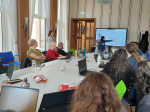
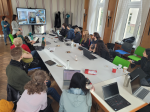
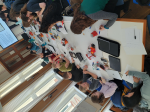
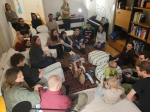
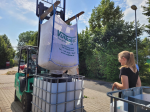
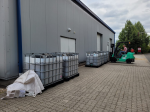
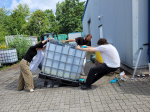
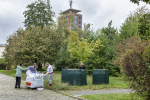
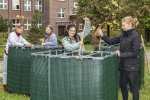
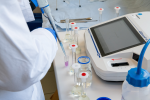
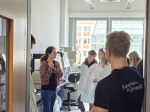
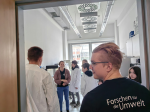




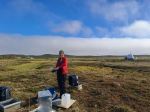
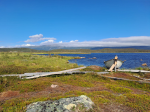
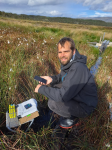
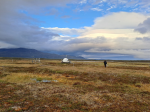
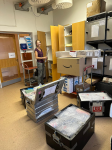
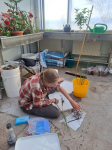
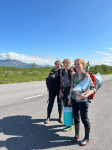
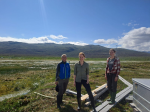
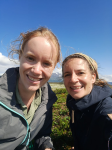
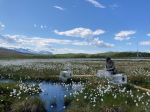
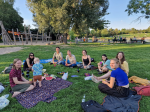

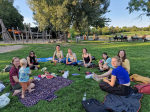


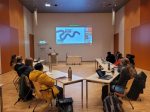
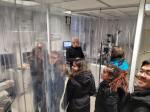
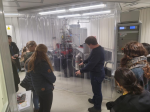
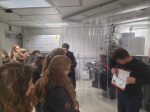
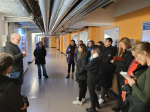

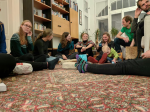
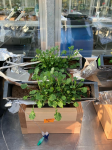
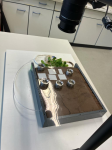
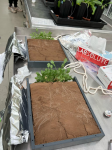
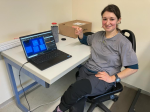
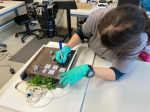
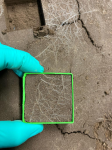
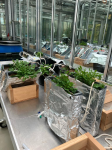
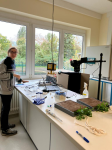
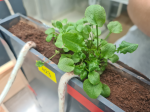
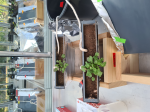
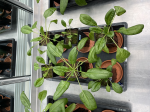
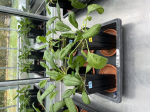
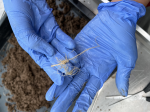
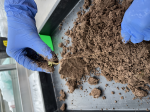
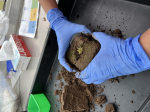
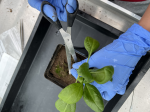

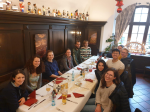
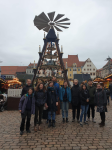
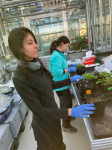
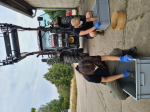
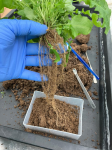
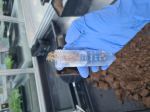
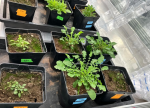
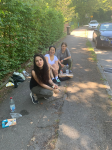


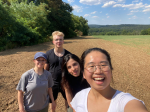
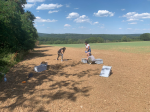
.png)
.png)
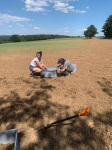
.png)
.png)

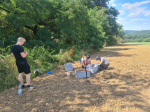
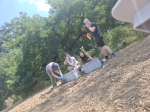
.png)
.png)
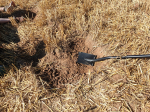
.png)
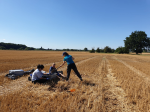
.png)
